Edwin O. Reischauer Institute of Japanese Studies
Harvard University

2018-20 Biennial Report
The Edwin O. Reischauer Institute of Japanese Studies at Harvard University supports research on Japan and provides a forum for related academic activities and the exchange of ideas, bringing together Harvard faculty and students, as well as scholars and visitors from other institutions, to create one of the world’s leading communities for the study of Japan.
Our Goals
• Cooperate with the Asia Center and other related programs at Harvard to increase the public’s understanding of Japan and Asia in the United States and abroad
• Expand and enrich research and teaching on Japan throughout the University
• Strengthen the ties between Harvard University and Japan
Edwin O. Reischauer Institute of Japanese Studies
Harvard University Center for Government and International Studies, South Building 1730 Cambridge Street, Cambridge, Massachusetts 02138
Phone 617.495.3220
Fax 617.496.8083
Email rijs@fas.harvard.edu
Website http://rijs.fas.harvard.edu/
2
Abbreviation Key
AC Asia Center
CGIS Center for Government and International Studies
CSWR Center for the Study of World Religions
Davis Davis Center for Russian and Eurasian Studies
DRCLAS David Rockefeller Center for Latin American Studies
EALC East Asian Languages and Civilizations
EAS East Asian Studies (Undergraduate Concentration)
Fairbank Fairbank Center for Chinese Studies
FAS Faculty of Arts and Sciences
GSAS Graduate School of Arts and Sciences
GSD Graduate School of Design
GSE Graduate School of Education
HAA History of Art and Architecture Department
HBS Harvard Business School
HDS Harvard Divinity School
HEAL History and East Asian Languages (Ph.D. Concentration)
HKS Harvard Kennedy School
HSPH Harvard School of Public Health
HYI Harvard-Yenching Institute
HYL Harvard-Yenching Library
KI Korea Institute
RIJS Reischauer Institute of Japanese Studies
RSEA Regional Studies-East Asia (M.A. Program)
SAI South Asia Institute
USJRP Program on U.S.-Japan Relations
VES Visual and Environmental Studies Department
WCFIA Weatherhead Center for International Affairs
Contents About the Institute Edwin O. Reischauer ................................................... 2 Home in CGIS 3 RIJS Director .................................................................. 4 Committees of the Institute .................................... 4 Faculty Announcements 6 RIJS Website .................................................................. 9 Note on Covid-19 Pandemic Impact .................... 9 Advancing Research in Japanese Studies Support for Faculty Research ............................... 10 Visiting Scholars ........................................................ 12 Postdoctoral Fellows ............................................... 13 Graduate Student Associates-in-Residence ... 14 Japan Forum 14 Other Seminars ......................................................... 18 Collaborative Study Projects ................................ 20 Conferences, Symposia, Workshops 21 Publications ................................................................ 29 Program on U.S.-Japan Relations ....................... 30 Harvard’s Libraries 31 Digital Initiatives ....................................................... 31 Japan Digital Research Center ............................. 31 Constitutional Revision 32 Japan Disasters Digital Archive ........................... 32 Supporting Harvard’s Educational Mission Programs for Harvard Undergraduates 36 Undergraduate Japan Experience 2018-20 .... 42 Support for Graduate Student Training ........... 44 Curriculum and Teaching ...................................... 46 Graduate Research and Training 2018-20 ....... 48 Courses on Japan at Harvard 2018-20 .............. 51 Ties to the Community Building Networks on Campus ............................ 54 Fostering Networks in the Community 54 Maintaining Ties Abroad ....................................... 56 Associates in Research............................................ 57 Administration ....................................................... 65
About the Institute
Established in 1973 as the Japan Institute, the Reischauer Institute of Japanese Studies (RIJS) was renamed in 1985 to commemorate the retirement of Edwin O. Reischauer. The Institute is one of Harvard’s international and regional centers, all of which operate under a mandate to contribute to the university as a whole. Administratively, the Institute reports to the FAS Dean. Since 1997, the Institute has been part of the Harvard University Asia Center (AC) and has coordinated closely with the AC and other associated units. Members of the RIJS Executive Committee also serve on the AC Executive Committee and Steering Committee.
Edwin O. Reischauer
October 1910-September 1990
Edwin Oldfather Reischauer was born and raised in Tokyo, the son of Presbyterian educational missionaries. At sixteen, he left Japan for Oberlin College, later taking up graduate work at Harvard where he studied East Asian history, including a five-year world study tour to Paris, Tokyo, Kyoto, and Beijing. He returned to Harvard with his wife Adrienne in 1938, received his Ph.D. in 1939, and taught in the Department of Far Eastern Languages until 1941, when the State Department and the Army recruited him to serve variously as a research analyst, organizer of Japanese language programs for the military, and translator of intercepted military intelligence. After his return to Harvard in 1946, Reischauer guided the development of a new curriculum in East Asian Studies and began his career as a prolific writer. It was during this “golden age” of teaching (to use his phrase) that he began his collaboration with John K. Fairbank to teach a course on East Asian Civilizations, nicknamed “Rice Paddies,” which is still taught today as part of the General Education curriculum.
An article written by Reischauer in 1960 analyzing current tensions between the U.S. and Japan caught the attention of U.S. President John F. Kennedy, who appointed Reischauer as ambassador to Japan (1961-1966). Key to Reischauer’s ambassadorial outlook was the notion of “equal partnership” between Japan and America. He and his second wife, Haru Matsukata, a journalist from Tokyo whom he had married after Adrienne’s death in 1955, gave priority to their ties with ordinary Japanese citizens and were enthusiastically received. Both professionally and personally, Haru was a supportive companion to her husband and a strong partner to him as ambassador and scholar.
 Edwin O. Reischauer, pictured here with his wife, Haru.
Edwin O. Reischauer, pictured here with his wife, Haru.
2
Returning to Harvard in 1966 as a University Professor, Reischauer continued to teach “Rice Paddies” and, reflecting his growing interest in contemporary issues, developed a course on Japanese Government and Politics in the Government Department and participated in a History Department course on The United States and East Asia. Reischauer wrote many books, including East Asia: Tradition and Transformation (1973), co-authored with John K. Fairbank and Albert M. Craig. He was the prime mover in establishing and funding the Japan Institute, later renamed in his honor, and he served as its director from 1974 to 1981. Up until his retirement in 1981, he continued to teach, write, and initiate a myriad of projects to enhance relations between the U.S. and Japan, including producing a series of lectures on Japanese history on videotape for the University.
Reischauer was instrumental in expanding not only Harvard’s curriculum but the field of East Asian studies as a whole, deepening American consciousness of Japan and the outside world. All of these contributions continue today to guide the Institute that gratefully carries his name.

Home in CGIS
Since 2005, the Reischauer Institute of Japanese Studies has been housed in the Center for Government and International Studies (CGIS), a complex designed to promote the crossing of boundaries and the forming of connections. RIJS shares the second floor of the CGIS South Building with the Korea Institute (KI) and the David Rockefeller Center for Latin American Studies (DRCLAS), and the Asia Center and many other Asiarelated programs are located nearby. Through CGIS, faculty, students, postdoctoral fellows, visiting scholars, and staff are seamlessly integrated into the dynamic international studies community at Harvard.
The spaces in CGIS South provided to graduate student associates-in-residence (GSAs), postdoctoral fellows, and visiting scholars promote interdisciplinary and cross-regional interaction. Each floor of the four-story building contains space with carrels assigned to graduate students affiliated with a regional studies institute and/or department. GSAs from different centers are mixed together, allowing for exciting academic exchange. RIJS postdoctoral fellows share office space with “postdocs” from other centers who have similar research interests. The postdocs enjoy a broader intellectual environment, and those who study more than one Asian country greatly benefit from proximity to other programs. Occupying a shared space, RIJS visiting scholars also have the opportunity to exchange ideas on various research topics, from political science to visual arts, literary studies to technology.
In addition, CGIS South regularly features contemporary and traditional art exhibitions on the Japan Friends of Harvard Concourse. Those hosted by RIJS include: Irresolution: The Paintings of Yoshiaki Shimizu (2017), From Artistry to Ethnography (2015), The Thinking Hand: Tools and Traditions of the Japanese Carpenter (2014), Tomokazu Matsuyama | Palimpsest (2013), Mizue Sawano | Eternal Return (2011), and Mitsuko Asakura | Tapestry in Architecture: Creating Human Spaces (2008).
RIJS Director
Mary C. Brinton is the Reischauer Institute Professor of Sociology and current Director of the Reischauer Institute of Japanese Studies. Professor Brinton is also a Faculty Associate at the Weatherhead Center for International Affairs and former Chair of the Harvard Department of Sociology (2010 to 2016). She joined the Harvard faculty in 2003, having previously taught at the University of Chicago for 12 years and at Cornell University for 4 years.

Professor Brinton’s research and teaching focus on gender inequality, labor markets and employment, social demography, and contemporary Japanese society. Her research combines qualitative and quantitative methods to study institutional change and its effects on individual action, particularly in labor markets. Her forthcoming book (Chūō Kōron Shinsha, summer 2022) analyzes the link between Japan’s stubbornly low birth rate and persistent gender inequality in the labor market and the family. Drawing on comparative statistics and in-depth interviews with young adult men and women, she argues that movement towards gender equality is stalled in Japan because of the primary policy emphasis on making women’s but not men’s work lives more consistent with family life. Sweden and the U.S. serve as counter-examples that respectively illustrate how social policy and open labor markets help society move towards greater gender equality and maintain higher birth rates. Professor Brinton studied sociolinguistics as an undergraduate at Stanford University, and she earned an M.A. in Japanese Studies and an M.A. and Ph.D. in Sociology at the University of Washington.
Committees of the Institute
The Full Committee (FC) carries out the core mission of RIJS. The FC is composed of tenured professors, junior faculty, and emeritus faculty from across the University whose research and teaching relate to Japan, as well as Japanese language faculty and librarians for the Japanese collections. The committee meets at least once annually, and its members participate actively in RIJS activities and subcommittees.
The Executive Committee (EC), the governing body of the Institute, is composed of 16 tenured faculty appointed from the FC by the FAS Dean. Membership recommendations for this committee are submitted annually to the Dean for approval. The EC meets four to six times per year to consider new initiatives, approve the annual budget, make formal and informal appointments, award fellowships and grants, and establish Institute policies and procedures.
The RIJS Full Committee 2018-20
Please see the next page of the names and titles of RIJS Full Committee members, which appear throughout this report. An asterisk (*) indicates members of the Executive Committee.
4
Ryūichi Abé, EALC*
Reischauer Institute Professor of Japanese Religions
David C. Atherton, EALC
Assistant Professor of East Asian Languages and Civilizations
Naomi Asakura, EALC Preceptor in Japanese (2019-20)
Theodore C. Bestor, Anthropology* Reischauer Institute Professor of Social Anthropology and Japanese Studies
Mary C. Brinton, Sociology* Reischauer Institute Professor of Sociology; Director of RIJS
Albert M. Craig, EALC Harvard-Yenching Professor of History Emeritus
Edwin A. Cranston, EALC* Professor of Japanese Literature (2019-20)
Christina L. Davis, Government* Professor of Government; Susan S. and Kenneth L. Wallach Professor, Radcliffe Institute; Director of USJP, WCFIA (2020-)
John M. Doyle, Physics
Henry B. Silsbee Professor of Physics
Theodore J. Gilman, WCFIA Executive Director of WCFIA
Andrew D. Gordon, History* Lee and Juliet Folger Fund Professor of History
Tomoko Graham, EALC Preceptor in Japanese
Helen Hardacre, EALC* Reischauer Institute Professor of Japanese Religions and Society
Takuro Hashimoto, EALC Preceptor in Japanese (2017-18)
Takao K. Hensch, Molecular and Cellular Biology Professor of Molecular and Cellular Biology; Professor of Neurology, Children’s Hospital
Howard S. Hibbett, EALC
Victor S. Thomas Professor of Japanese Literature Emeritus
David L. Howell, EALC*
Robert K. and Dale J. Weary Professor of Japanese History
Akira Iriye, History
Charles Warren Professor of American History Emeritus
Kosuke Imai, Government Professor of Government and Statistics
Wesley M. Jacobsen, EALC* Professor of the Practice of the Japanese Language; Director of the Japanese Language Program
Geoffrey G. Jones, HBS Isidor Straus Professor of Business History
Yuko Kageyama-Hunt, EALC
Senior Preceptor in Japanese
Rie Kamimura, EALC
Drill Instructor in Japanese (2018-19)
Ichiro Kawachi, HMS / HSPH
John L. Loeb and Frances Lehman Professor of Social Epidemiology
Susumu Kuno, Linguistics Professor of Linguistics Emeritus
Shigehisa Kuriyama, EALC*
Reischauer Institute Professor of Cultural History; Harvard College Professor
Yukio Lippit, HAA*
Jeffrey T. Chambers and Andrea Okamura Professor of History of Art and Architecture
Melissa McCormick, EALC* Professor of Japanese Art and Culture; Harvard College Professor
Kuniko McVey, HYL Librarian for the Japanese Collection
Ian J. Miller, History* Professor of History
Takuma Miura, EALC Drill Instructor in Japanese
Miki Miyagawa, EALC Drill Instructor in Japanese
Toshiko Mori, GSD
Robert P. Hubbard Professor in the Practice of Architecture
David R. Odo, Harvard Art Museums Director of Student Programs; Research Curator of University Collections Initiatives
Susan J. Pharr, Government*
Edwin O. Reischauer Professor of Japanese Politics; Director of USJP, WCFIA (2018-20)
J. Mark Ramseyer, HLS*
Mitsubishi Professor of Japanese Legal Studies
Michael R. Reich, HSPH
Taro Takemi Professor of International Health Policy
James Robson, EALC
James C. Kralik and Yunli Lou Professor of East Asian Languages and Civilizations; Victor and William Fung Director of HUAC
Henry Rosovsky, Economics
Lewis P. and Linda L. Geyser University Professor Emeritus
Jay Rubin, EALC
Takashima Professor of Japanese Humanities Emeritus
Victor Seow, History of Science Assistant Professor of the History of Science
Ikue Shingu, EALC Preceptor in Japanese
Daniel M. Smith, Government Associate Professor of Comparative Politics
Hirotaka Takeuchi, HBS Professor of Management Practice
Karen L. Thornber, Comparative Literature*
Henry Tuchman Levin Professor in Literature; Professor of East Asian Languages and Civilizations
Ezra F. Vogel, Sociology
Henry Ford II Professor of the Social Sciences Emeritus
Mihoko Yagi, EALC
Drill Instructor in Japanese (2019-20)
Tomiko Yoda, EALC*
Takashima Professor of Japanese Humanities
Junya Yoshino, EALC Drill Instructor in Japanese
Michael Y. Yoshino, HBS
Herman C. Krannert Professor of Business Administration Emeritus
Alexander Zahlten, EALC
Associate Professor of East Asian Languages and Civilizations
5
Faculty Announcements
New Faculty
In fall 2018, RIJS welcomed two new faculty members.
Christina L. Davis
Christina L. Davis is a Professor of Government in the Faculty of Arts and Sciences and Susan S. and Kenneth L. Wallach Professor at the Radcliffe Institute. In January 2020, she also became Director of the Program on US-Japan Relations at the Weatherhead Center for International Affairs.
Her research interests include the politics and foreign policy of Japan and East Asia and the study of international organizations, with a focus on trade policy, and her research has been published in leading political science journals. Professor Davis is the author of Food Fights over Free Trade: How International Institutions Promote Agricultural Trade Liberalization (Princeton University Press, 2003) and Why Adjudicate? Enforcing Trade Rules in the WTO (Princeton University Press, 2012), which won the International Law Book Award and Chadwick F. Alger Prize from the International Studies Association, as well as the Masayoshi Ohira Memorial Prize.
Professor Davis received her A.B. in East Asian Studies and her Ph.D. in Government from Harvard, and she returns after 16 years on the faculty of Princeton University.
Kosuke Imai
Kosuke Imai is Professor in the Department of Government and the Department of Statistics at Harvard and an affiliate of the Institute for Quantitative Social Science.
His research area is political methodology and more generally applied statistics in the social sciences, and he has extensively worked on the development and applications of statistical methods for causal inference with experimental and observational data. He is the author of Quantitative Social Science: An Introduction (Princeton University Press, 2017). He has published more than fifty peer-refereed journal articles in political science, statistics, and other fields, and authored over ten open-source software packages. He has won several awards including the Miyake Award (2006), the Warren Miller Prize (2008), the Pi Sigma Alpha Award (2013), the Stanley Kelley, Jr. Teaching Award (2013), the Statistical Software Award (2015), and is the inaugural recipient of Society of Political Methodology’s Emerging Scholar Award (2011).
Professor Imai received his B.A. in Liberal Arts from the University of Tokyo and his A.M. in Statistics and Ph.D. in Political Science from Harvard University, and he returns after 15 years of teaching at Princeton University, where he was the founding director of the Program in Statistics and Machine Learning.
In Memoriam
With great sadness, the Reischauer Institute notes the passing of Professor Ronald Dore and Professor Howard Hibbett.
Professor Ronald Dore, eminent British sociologist of Japan, passed away on November 14, 2018. Prof. Dore’s research and writing on Japanese society, culture, and economy profoundly shaped inquiries into Japan’s postwar social transformation and institutions and made a lasting impact on subsequent generations of area studies scholars. Over the course of his academic career, his intellectual focus spanned topics from rural land reform and urban life to factory management and educational achievement (including his pathbreaking
6
1965 book Education in Tokugawa Japan).
Prof. Dore joined the Japanese studies community at Harvard as Reischauer Institute Visiting Professor in 1987, and he returned to campus again in 1988 and 1989 to co-teach classes with Profs. Ezra Vogel and Susan Pharr. In 1996, he delivered the Distinguished Visitor Lecture for the Weatherhead Center Program on US-Japan Relations. Prof. Dore’s long and rigorous engagement with Japan is a legacy that continues to enrich the field of Japanese studies to this day. We hold in great esteem his profound contributions as an academic, colleague, and generous mentor to younger scholars of Japan in the US and around the world.
Professor Howard Hibbett, Victor S. Thomas Professor in Japanese Literature Emeritus, passed away on March 13, 2019. Prof. Hibbett was a central part of our Japanese Studies community on campus, and a beloved colleague and dear friend to many faculty, students, and staff during his many years at Harvard. He was the Victor S. Thomas Professor of Japanese Literature, Emeritus, having joined the Harvard faculty in 1958. He served as Chair of the Department of East Asian Languages and Civilizations from 1965-1970 and again in 1972, and he was Director of the Reischauer Institute of Japanese Studies from 1985-1988. Originally a Harvard graduate (College ’47, Ph.D. ’50), Prof. Hibbett graced the halls of Harvard for nearly 70 years.
A prolific scholar and translator, Prof. Hibbett published numerous works on Japanese literature and trained generations of scholars. He is especially known for his translations of Junichiro Tanizaki, and in 2018 he was awarded the Lindsley and Masao Miyoshi Translation Prize from the Donald Keene Center of Japanese Culture at Columbia University, “for lifetime achievement as a translator of Edo period and modern Japanese literature.” We deeply appreciate his leadership and commitment to the Reischauer Institute in promoting Japanese Studies on campus, as well as his longstanding interest in our activities. He will be greatly missed.
Faculty News
Daniel Smith completes new co-edited volume Japan Decides 2017
In February 2018, Daniel Smith completed a co-edited volume with Robert Pekkanen (Univ. of Washington), Steven Reed (Chuo Univ.), and Ethan Scheiner (UC Davis), titled Japan Decides 2017: The Japanese General Election. The third volume in the Japan Decides series, this volume discusses the 2017 general election results, party politics, coalition politics with Komeito, the cabinet, constitutional revision, new opposition parties, and Abenomics, among a variety of topics in Japanese politics.
J. Mark Ramseyer awarded Order of the Rising Sun, Gold Rays with Neck Ribbon
On 19 December 2018, J. Mark Ramseyer was awarded the Order of the Rising Sun, Gold Rays with Neck Ribbon, by the Japanese government. One of the oldest and highest national decorations, this conferral recognized his extensive contributions to the development of Japanese studies in the US and the promotion of understanding of Japanese society and culture.
Toshiko Mori leads architecture studio to Japan
In February 2019, Toshiko Mori led an advanced architecture design studio from the Graduate School of Design on a week-long trip to study the legacy of modernist architecture in Japan, with a focus on the Seto Inland Sea region. After studying the post-war history and the cultural, political, and economic background of Modernism, the studio investigated the Kagawa Gymnasium (1964), named one of the most endangered architectural monuments by the World Monument Fund’s Watch List of 2018, and proposed a design for its new use based on their research before and during the trip. While in Japan, the studio visited various art museums and architectural sites throughout Tokyo, Okayama, Kagawa, and Hiroshima prefectures (including the three islands Naoshima, Teshima, and Inujima), and met with the Governor of Kagawa Prefecture. News
7
coverage on the visit can be found here: https://headlines.yahoo.co.jp/hl?a=20190215-00010000-ksbv-l37, https://www.pref.kagawa.lg.jp/content/dir4/dir4_3/dir4_3_2/wilps2190206120107.shtml
Melissa McCormick curates exhibition on Tale of Genji at the Metropolitan Museum
From 5 March – 16 June 2019, the Metropolitan Museum opened an exhibition titled The Tale of Genji: A Japanese Classic Illuminated, curated by Melissa McCormick and John Carpenter (Mary Griggs Burke Curator of Japanese Art, The Met). The first major loan exhibition in North America to focus on art inspired by Murasaki Shikibu’s The Tale of Genji, this exhibition presented a wide range of works – from manuscripts to paintings to calligraphy – and offered a new perspective on the author, characters, and story, as reflected by these artistic interpretations. The exhibition homepage can be found here: https://www.metmuseum.org/ exhibitions/listings/2019/tale-of-genji
In December 2019, Sebastian Smee and Philip Kennicott of The Washington Post named this exhibition among the top five art exhibitions of the year. The complete article can be found here: https://www. washingtonpost.com/entertainment/museums/in-a-year-of-upheaval-the-best-art-was-also-thebravest/2019/12/09/246cab64-1545-11ea-9110-3b34ce1d92b1_story.html
Andrew Gordon featured on Asahi Shimbun and CNN to discuss imperial transition
On 3 April 2019, the Asahi Shimbun published an interview with Andrew Gordon on the naming of the new Reiwa Era. The article can be found here: https://adgordon.net/files/agordon/files/asahi_2019.04.03.pdf
On 30 April 2019, Andrew Gordon made an appearance on CNN to discuss the Japanese imperial transition on the first day of the Reiwa Era. He commented on the meaning and literary significance of reiwa, as well as the role of the emperor and the laws of succession. The full segment “Japan’s Emperor Naruhito Takes the Chrysanthemum Throne” can be found here: https://adgordon.net/files/agordon/files/andrew_gordan.mp4 [sic]
Rachel Saunders curates exhibition on Prince Shōtoku at Harvard Art Museums
From 25 May – 11 August 2019, the Harvard Art Museums opened an exhibition titled Prince Shōtoku: The Secrets Within, curated by Rachel Saunders. First acquired by Ellery Sedgwick Sr. in 1936 and gifted to Harvard by Walter C. Sedgwick ’69, the sculpture Prince Shōtoku at Age Two is the oldest extant image of the putative father of Japanese Buddhism in the world, valued for both its aesthetic qualities and its undisturbed cache of 70 dedicatory objects discovered inside its hollow body cavity. The entire ensemble has drawn intense interest from a wide range of scholars and is now available for study and appreciation for generations to come. The exhibition homepage can be found here: https://www.harvardartmuseums.org/exhibitions/5756/ prince-shotoku-the-secrets-within
Andrew Gordon completes new edition of textbook A Modern History of Japan
Authored by Andrew Gordon, the fourth edition of A Modern History of Japan: From Tokugawa Times to the Present was published by Oxford University Press in July 2019. Updating political and economic developments since 2013, this extensively revised fourth edition offers strengthened coverage of environmental history, including discussion of the relationship of social, political, economic, and cultural life with the natural environment.
James Robson appointed Faculty Director of Harvard University Asia Center
Effective 1 August 2019, James Robson was named Victor and William Fung Director of the Harvard University Asia Center by FAS Dean Claudine Gay and Provost Alan Garber. Succeeding Karen Thornber, he will serve for a 3-year term. Prof. Robson was also featured in Nikkei Business for an interview discussing the “power of place.” The article can be found here: https://business.nikkei.com/atcl/gen/19/00067/101600046/
10 8
Mary Brinton quoted in The New York Times for current sociology research
In August 2019, Mary Brinton was quoted in a New York Times article about women opting out of marriage in Japan. Prof. Brinton has been studying the factors at work in countries with historically low birth rates in parts of Europe and East Asia, especially Japan, and interview data have suggested a “strong correlation” with gender inequality at home and in the workplace. This article can be found here: https://www.nytimes. com/2019/08/03/world/asia/japan-single-women-marriage.html
She also discussed this research in an article in The Harvard Gazette: https://news.harvard.edu/gazette/ story/2019/03/harvard-studies-japan-from-ancient-to-modern/
Three RIJS faculty named to endowed professorships
During fall 2019, three Reischauer Institute faculty were named to endowed professorships by FAS Dean
Claudine Gay and Provost Alan M. Garber:
David L. Howell, Robert K. and Dale J. Weary Professor of Japanese History
Yukio Lippit, Jeffrey T. Chambers and Andrea Okamura Professor of History of Art and Architecture
Karen L. Thornber, Harry Tuchman Levin Professor in Literature
Christina Davis appointed Faculty Director of Program on US-Japan Relations
Succeeding Susan Pharr, Christina Davis was appointed Director of the Program on US-Japan Relations at the Weatherhead Center for International Affairs, effective 1 January 2020. She was also featured in the Asahi Shimbun “Hito” Column for her new directorship. The article can be found here: https://www.asahi.com/ articles/DA3S14344802.html
Rachel Saunders and Yukio Lippit curate exhibition at Harvard Art Museums
From 14 February – 26 July 2020, the Harvard Art Museums opened an exhibition titled Painting Edo: Japanese Art from the Feinberg Collection, curated by Rachel Saunders and Yukio Lippit. The largest ever presented at the Harvard Art Museums, this exhibition included 120 of the over 300 works promised by Robert S. and Betsy G. Feinberg, offering an exceptional opportunity to explore continuities and disruptions in artistic practice in early modern Japan. The exhibition homepage can be found here: https://www. harvardartmuseums.org/exhibitions/5909/painting-edo-japanese-art-from-the-feinberg-collection
RIJS Website
Established in 2005, the RIJS website provides an overview of the Institute’s faculty, scholars, and students; events and activities; grants and fellowships; and publications. A renewed website was launched in fall 2018. Visit the RIJS website at: http://rijs.fas.harvard.edu.
Covid-19 Pandemic Impact on Institute Operations
On March 12, 2020, the World Health Organization declared Covid-19 a global pandemic. Beginning on March 16, 2020, Harvard University announced a transition to virtual instruction as students and faculty were sent away from campus. Following university guidance, the Institute also began a remote work period for staff in response to the unfolding situation. Events scheduled during the remainder of the spring semester were cancelled or postponed, and summer programs were cancelled due to travel bans. Over the next two years, Institute activities and operations were carried out online.
11
9
Advancing Research in Japanese Studies Advancing Research
Since its founding in 1973, the Reischauer Institute of Japanese Studies has sought, in a variety of ways, to promote and support research on Japan in all fields and disciplines across the University.
In addition to supporting Harvard faculty, RIJS creates professorships to bring in faculty from new or underrepresented fields. The research community built at Harvard includes not only faculty and students, but also leading visiting scholars, postdoctoral fellows, and, since 2005, graduate student associates-in-residence. RIJS organizes and/or sponsors seminars, conferences, colloquia, collaborative projects, and other activities that contribute to the exchange of ideas, while also supporting the WCFIA Program on US-Japan Relations, which fosters social science research that bears on Japan’s role in the world as an advanced industrial society. Finally, RIJS maintains a dynamic publications program that has produced a number of prize-winning books, provides major support to the Japanese language collection in the Harvard Libraries, and undertakes numerous initiatives including the recently established Japan Digital Research Center.
Support for Faculty Research
Professorships
Over the past two decades, the Institute has played a prominent role in building Harvard’s intellectual infrastructure for the study of Japan through creating professorships in the Faculty of Arts and Sciences (FAS). No other Japanese Studies program in the world has done more to create or support new faculty positions. These positions are intended to be incremental and are normally funded through the Institute’s endowment. Thus, the Institute owes much gratitude to its many friends in Japan who provided the original endowment funding in support of building Japanese Studies at Harvard.
The current RIJS faculty appointments are as follows:
›› Edwin O. Reischauer Professor of Japanese Politics: Susan J. Pharr
›› Reischauer Institute Professor of Cultural History: Shigehisa Kuriyama
›› Reischauer Institute Professor of Japanese Religions: Ryūichi Abé
›› Reischauer Institute Professor of Japanese Religions and Society: Helen Hardacre
›› Reischauer Institute Professor of Social Anthropology and Japanese Studies: Theodore C. Bestor
›› Reischauer Institute Professor of Sociology: Mary C. Brinton
›› Associate Professor of East Asian Languages and Civilizations: Alexander Zahlten
›› Associate Professor of Government: Daniel M. Smith
10
Edwin O. Reischauer Professorship in Japanese Studies
The terms of the Institute’s endowment also provide for a professorship, named for Edwin O. Reischauer following his retirement in 1980. Intended to contribute directly to faculty research and to the educational mission of the University, the professorship allows FAS senior faculty in Japanese Studies to devote up to one academic year to full-time research at some point during their tenure at Harvard. Normally, in alternating years, the Institute offers appointment as a visiting professor to a leading scholar in Japanese Studies. Visiting professors divide their time between research and teaching, offering two courses over the academic year, including at least one lecture course at the undergraduate level.
There were no Edwin O. Reischauer Professors in 2018-19. In 2019-20, Theodore C . Bestor, Reischauer Institute Professor of Social Anthropology, held the Edwin O. Reischauer Professorship.
Supplementary Support for Faculty
Since 2009, the Institute has provided salary support for a number of FAS faculty. In 2018-20, the following faculty received support for their research:
Melissa McCormick, EALC
The Tale of Genji: A Japanese Classic Illuminated
Curated by Melissa McCormick and John Carpenter (Mary Griggs Burke Curator of Japanese Art, The Met), this exhibition was held at the Metropolitan Museum from March to June 2019. This was the first major loan exhibition in North America to focus on art inspired by Murasaki Shikibu’s The Tale of Genji, presenting a wide range of works – from manuscripts to paintings to calligraphy – and offering a new perspective on the author, characters, and story, as reflected by these artistic interpretations. A catalogue was also published by the curators for this exhibition: https://www.metmuseum.org/exhibitions/listings/2019/tale-of-genji.
Carol Oja, Music
Marian Anderson’s 1953 Concert Tour of Japan: A Transnational History
In collaboration with Misako Ohta (Associate Professor, Kobe University) and graduate students Makiko Kimoto (Kobe) and Katherine Callam (Harvard), this project focused on the Japanese concert tour of the celebrated African American contralto Marian Anderson in 1953, the year after the American Occupation ended. The resulting article was published in American Music, University of Illinois Press.
Victor Seow, History
Making History: Technologies of Production in East Asia’s Past
Held in October 2019, this workshop was hosted by Victor Seow in collaboration with Dagmar Schäfer (Managing Director, Max Planck Institute). The workshop invited five other Japan-related scholars and graduate students: Sakura Christmas, Yulia Frumer, Aleksandra Kobiljski, Shi-Lin Loh, and Ian J. Miller.
11
Visiting Scholars
Visiting scholars are a vital part of the Reischauer Institute of Japanese Studies and the research community at Harvard. Their appointments vary widely from a few months to two years, with most staying for one year. During their stay, they collaborate with faculty or contribute directly to ongoing research endeavors at RIJS; advise students and provide contacts for Harvard undergraduate and graduate students preparing to conduct research abroad; give lectures and speak in classes; and participate in seminars and other research activities.
Student Host Program for Visiting Scholars
RIJS seeks to fully integrate visiting scholars into the research community and to ensure the opportunity for Harvard students to form working relationships with scholars who share intellectual interests. This mutually beneficial exchange allows scholars to offer advice and assistance to students during their stay and beyond. The RIJS Student Host Program pairs students with visiting scholars based on disciplinary focus.
The visiting scholars for 2018-20 are listed below, along with their institutions, research topics, faculty sponsors, and student hosts.
2018-19
Tsuyoshi Kawasaki, Shujitsu University
Envisioning En-no-Gyōja: Founder of Shugendō and Esoteric Master
Faculty Sponsor: Ryūichi Abé
Student Host: Jonathan Thumas, EALC
Tetsuya Mariko, Independent Filmmaker
Japanese Film History and the Harvard Film Archive’s Japanese Film Collection
Faculty Sponsor: Alexander Zahlten
Student Host: Patrick Chimenti, EALC
Noboru Matsuura, Tokyo University of the Arts
Japanese Shadow Methods in Ukiyo-e of the 18th and 19th Centuries
Faculty Sponsor: Yukio Lippit
Student Host: Leah Justin-Jinich, EALC
Sachiya Takeda, Kokugakuin University
Study of State Shinto in Japan
Faculty Sponsor: Helen Hardacre
Student Host: Jesse LeFebvre, EALC
Makiko Takekuro, Waseda University
The Linguistic Anthropology of Okinawa
Faculty Sponsor: Theodore Bestor
Shoji Teshigawara, Kahoku Shimpō
Comparing Fukushima Daiichi Nuclear Plant with Massachusetts
Pilgrim Nuclear Power Station
Faculty Sponsor: Andrew Gordon
Student Host: Terasa Younker, EALC
2019-20
Akira Ide, Kanazawa University
Dark Tourism
Faculty Sponsor: Andrew Gordon
Yutaka Kanda, Niigata University
Sone Eki and the Politics of the Left in Postwar Japan
Faculty Sponsor: Andrew Gordon
Student Host: Jesus Solis, History
Tetsuya Mariko, Independent Filmmaker
Japanese Film History and the Harvard Film Archive’s Japanese Film Collection
Faculty Sponsor: Alexander Zahlten
Student Host: Patrick Chimenti, EALC
Fumihiro Okada, Minobusan University
Eleventh-Century Tales on the Lotus Sutra by the Monk Chingen
Faculty Sponsor: Ryūichi Abé
Student Host: Jonathan Thumas, EALC
Toshiyuki Ohwada, Keio University
Popular Music Scenes in Japan and the US
Faculty Sponsor: Tomiko Yoda
Rie Sugiyama, Kokugakuin University
Economic History and Business History in Prewar Japan
Faculty Sponsor: Geoffrey Jones
12
Postdoctoral Fellows
One of the oldest and most prestigious of its kind in the US, the RIJS Postdoctoral Fellowship Program provides recent graduates with the opportunity to continue their doctoral research at Harvard and produce publishable work from their dissertations. Former RIJS Postdoctoral Fellows occupy leading positions in Japanese Studies in universities all over the world.
Each year, the application process opens to a large pool of candidates in all fields and disciplines. Applicants must be within five years of earning their doctoral degree, in Japanese Studies, in any area of the humanities or social sciences. Selected fellows spend their year at Harvard actively involved in the Japanese Studies community at Harvard, work with faculty and students, and present their research in the Japan Forum lecture series at some point during their stay. RIJS also provides support for each fellow to host a manuscript workshop and participate in other research activities such as conferences and travel.
The postdoctoral fellows for 2018-20 are listed below, along with their PhD institutions, fields, degree years, and research topics.
2018-19
Michael Abele
University of Illinois at Urbana-Champaign, Premodern Japanese History, 2018
Peasants, Skinners, and Dead Cattle: The Transformation of Rural Society in Western Japan, 1600-1890
Julia Alekseyeva
Harvard University, Comparative Literature, 2017
Kino-Eye, Kino-Bayonet: The Avant-Garde Documentary in Japan, France, and the USSR
Robert Hegwood
University of Pennsylvania, Modern Japanese History, 2018
Transnational Foundations for Growth: Migrant Brokers and Japan’s Rise as a World Power, 1868-1964
Lisa Hofmann-Kuroda
University of California Berkeley, Modern Japanese Literature, 2018
The Tree of Life: The Politics of Kinship in Meiji Japan (1870-1915)
Mari Ishida
University of California Los Angeles, Modern Japanese Literature, 2016
Imperial Literature: Languages, Bodies, and Others in the Japanese Empire
Anna Skarpelis (Digital Fellow)
New York University, Sociology, 2018
Making the Master Race: Germany, Japan and the Rise and Fall of Racial States
2019-20
Yuki Asahina
University of Hawaii at Manoa, Sociology, 2019
Insecure Millennials: Coming of Age in Seoul and Tokyo
Lewis Bremner
University of Oxford, Modern Japanese History, 2019
The Magic Lantern in Japan: Transnational Technology Across the Long Nineteenth Century
Kaoru Hayashi
Princeton University, Premodern Japanese Literature, 2018
Mediating Spirits: Narratives of Vengeful Spirits and Genealogies in Premodern Japanese Literature
Matthew Mullane
Princeton University, Japanese Art and Architectural History, 2019 World Observation: Itō Chūta and the Making of Architectural Knowledge in Modern Japan
13
Graduate Student Associates-in-Residence
RIJS is surrounded by an extensive community of scholars which prominently includes graduate students enrolled in a number of departments and programs. Space in the CGIS Building makes it possible for RIJS and the other Asia-related centers to provide carrels or other space to a small number of Harvard PhD students completing their dissertations. Designated as graduate student associates-in-residence (GSAs), these students are encouraged to attend events hosted by RIJS and other international centers and invited to various functions hosted by RIJS. This development offers an important new way of bringing advanced graduate students more fully into the Japanese Studies research community.
In 2018-20, a total of 11 graduate students in Japanese Studies were designated as GSAs, as follows:
2018-19
Julia Cross, EALC
Ryan Glasnovich, EALC/HEAL
Yusung Kim, EALC
Jonas Rüegg, EALC/HEAL
Eric Swanson, EALC
Rebecca Veolcker, VES
Japan Forum
2019-20
Keung Yoon (Becky) Bae, EALC
Julia Cross, EALC
Yuting Dong, EALC/HEAL
Sara Kang, History
Jonathan Thumas, EALC
Catherine Tsai, EALC/HEAL
Established in 1974 in response to growing interest in Japanese Studies at Harvard, the Japan Forum lecture series provides scholars from a variety of fields and disciplines with an opportunity to present their research before a diverse audience that includes faculty, students, fellow scholars, and the general public. Assembling each Friday afternoon throughout the academic year, each forum is hosted by a Harvard faculty member and is followed by a reception at which attendees have an opportunity to interact with the speaker and with each other. After the reception, a smaller number of interested Harvard faculty, students, and other guests share dinner with the speaker. In addition, since 2010, RIJS has occasionally invited speakers to informal lunch gatherings with graduate students.
Since 1974, RIJS has sponsored more than 750 Japan Forum talks. In chronological order, the 2018-20 presentations are as follows:
2018-19
Helen Hardacre, Harvard University
The Japanese Enthronement Ceremonies of 2019: Ancient Ritual Meets Contemporary Politics (co-sponsored by USJRP)
Kenneth Ruoff, Portland State University
The Heisei Monarchy (1989-present) and the Future of the Japanese Monarchy
Faculty Host: Helen Hardacre (co-sponsored by USJRP)
Julia Alekseyeva, RIJS Postdoctoral Fellow
Cinema-Truth in 1960s Japan: Critiques of Objectivity
Faculty Host: Alexander Zahlten
Ken Tadashi Oshima, University of Washington
In Between Space: Frank Lloyd Wright’s Interchange with Japan
Faculty Host: Yukio Lippit
Michael Abele, RIJS Postdoctoral Fellow
Peasants, Skinners, and Dead Cattle: Capitalist Transformation of Property
Rights in Rural Tokugawa Japan
Faculty Host: David Howell
Mari Ishida, RIJS Postdoctoral Fellow
Imperial Literature and the Voices of Others: Ideological Visions of the Multiethnic Japanese Empire
Faculty Host: Tomiko Yoda
Benjamin Uchiyama, University of Southern California
The Hundred Man Killing Contest and the Birth of Carnival War in Japan
Faculty Host: Andrew Gordon
Vyjayanthi Ratnam Selinger, Bowdoin College
War Without Blood? The Curious Itinerary of a Taboo Fluid in Medieval Japan
Faculty Host: David Atherton
16 14
Brian Steininger, Princeton University
Rhyming Machines: Textual Technologies in Medieval Japan
Faculty Host: Karen Thornber
Andrew Gordon, Harvard University
“Dark Tourism” in Japan (co-sponsored by USJRP)
Brian Platt, George Mason University
The Sadness of Old Things: The Fate of an Ancient Monument in Tokugawa Japan
Faculty Host: David Howell
Lisa Hofmann-Kuroda, RIJS Postdoctoral Fellow
Blood Ties: Critiques of the Family in Early 20th-Century Japanese Literature
Faculty Host: Karen Thornber
Duncan Williams, University of Southern California
BOOK TALK: American Sutra: Buddhism and the Incarceration of Japanese Americans during WWII
Discussants: Diana Eck (Harvard University), Stephen Prothero (Boston University)
Faculty Host: Helen Hardacre
(co-sponsored by Harvard Pluralism Project, CSWR, Harvard Buddhist Studies Forum, USJRP, and New England Japanese American Citizens League)
Brett de Bary, Cornell University
Theory, Fiction, and the Lightness of Translation in the Literature of Tawada Yoko
Faculty Host: Tomiko Yoda
2019-20
Alexander Zahlten, Harvard University
Left to the Occult: Networks & Media Culture in Japan, 1960s-1990s
Faculty Host: Tomiko Yoda (co-sponsored by EALC)
David Slater, Sophia University
New Refugee Flows into Japan: Oral Narratives Research and Community Support
Faculty Host: Mary Brinton (co-sponsored by USJRP)
Carol Gluck, Columbia University
Postwar Japan: A Pre-Postmortem
Faculty Host: Ian Miller (co-sponsored by USJRP)
Bryan Lowe, Princeton University
The Fragility of Connection: Roads, State, and Religion in Ancient Japan
Faculty Host: Ryūichi Abé
Kaoru Hayashi, RIJS Postdoctoral Fellow
Mononoke at the Bedside: Redefining Spirits and Kinship in The Tale of Genji
Faculty Host: David Atherton
Shochi Iwasaki, University of California Los Angeles
Which Languages are to be Saved and How? An Examination of the Ryukyuan Languages
Faculty Host: Wesley Jacobsen
Trent Maxey, Amherst College
The Automobile and its Drivers in Imperial Japan
Faculty Host: Ian Miller
Sherry Fowler, University of Kansas
Over and Underwater Adventures of Buddhist Bells in Japan
Faculty Host: Yukio Lippit
Shigeru Miyagawa, MIT
What is the Source of Politeness When You Use the –masu form?
Faculty Host: Wesley Jacobsen
William Kelly, Yale University
85 Years of Suye Mura: The Life History of a Japanese Village— and its Anthropology
Faculty Host: Mary Brinton (co-sponsored by USJRP)
Mark Ravina, Emory University
Mapping Missing Monks: A Digital Humanities Perspective on the Persecution of Buddhism in Early Meiji Japan
Faculty Host: Shigehisa Kuriyama
Robert Hegwood, RIJS Postdoctoral Fellow
Japan at Treasure Island: Diasporic Diplomacy at the San Francisco International Exposition, 1939-1940
Faculty Host: Andrew Gordon (co-sponsored by USJRP)
Marnie Anderson, Smith College
The Meiji Restoration as a New Start: Politics and Social Reform in the Life of Former Samurai and His Concubine
Faculty Host: David Howell
Hiromi Mizuno, University of Minnesota
Reclaiming Land, Reframing History: Kaitaku Genealogies and Modern Japan
Faculty Host: David Howell
Ryo Morimoto, Princeton University
Wild Boar Chase and Mononoke Wonderland: The Half-Life Politics of Nuclear
Things in Coastal Fukushima
Faculty Host: Andrew Gordon (RIJS JDA Project Special Presentation, co-sponsored by USJRP)
Jolyon Thomas, University of Pennsylvania
Faking Liberties: Religious Freedom and the American Occupation of Japan
Faculty Host: Daniel Smith (co-sponsored by USJRP)
Christine Marran, University of Minnesota
Japanese Literature in an Age of Rising Seas
Faculty Host: Tomiko Yoda
Lewis Bremner, RIJS Postdoctoral Fellow
Magic Lantern Technology, Transnational Knowledge, and the ‘Living Machine’ in Tokugawa Japan
Faculty Host: David Howell
Roger Goodman, Oxford University
Family-run Universities in Japan: Sources of Inbuilt Resilience in the Face of Demographic Pressure, 1992-2030
Faculty Host: Susan Pharr (co-sponsored by USJRP)
Yuki Asahina, RIJS Postdoctoral Fellow
Merit or Inheritance?: How Young Adults Understand Inequality in Japan and Korea
Faculty Host: Mary Brinton (co-sponsored by KI, and USJRP)
17
15
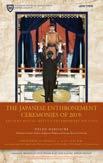
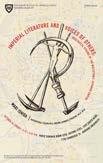

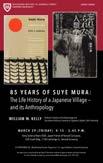
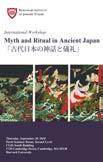
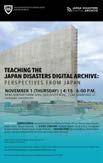

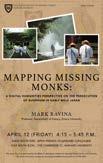

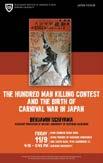
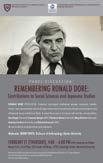
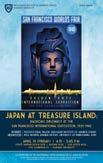


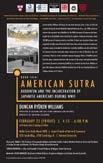
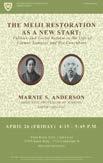
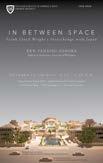
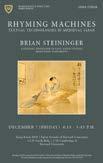
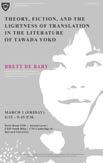
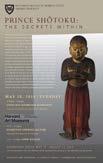


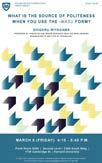

16
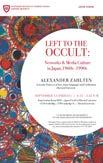
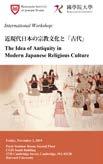
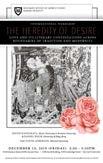

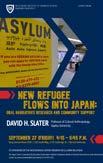
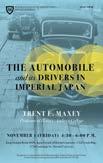



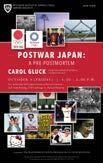
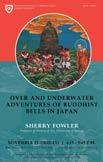
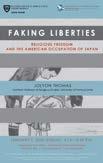
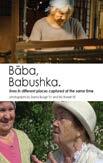
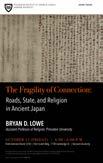
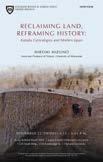

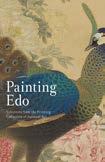

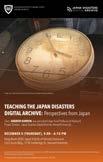
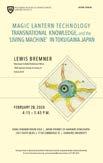
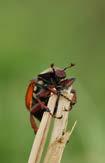
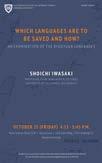

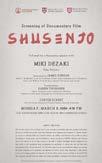
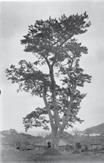
17 INTERNATIONAL CONFERENCE OCEANIC JAPAN: ENVIRONMENTAL HISTORIES OF THE ARCHIPELAGO AND THE SEA JANUARY 24 – 25, 2020 | HARVARD UNIVERSITY KANG SEMINAR ROOM S050 JAPAN FRIENDS OF HARVARD CONCOURSE CGIS SOUTH BUILDING | 1730 CAMBRIDGE STREET HARVARD ASIA CENTER HARVARD-YENCHING INSTITUTE EDWIN O. REISCHAUER INSTITUTE OF JAPANESE STUDIES AT HARVARD UNIVERSITY
Other Seminars
Each year the Institute organizes and/or sponsors a variety of seminars and lectures on topics related to Japan. A number of these events are co-sponsored with other departments and centers, as indicated below.
2018-19
Nick Kapur, Rutgers University
When Revolutions Fail: Japan’s 1960 Protests and the Contemporary World Faculty Host: Andrew Gordon (USJP presentation co-sponsored by RIJS)
Fabio Lanza, University of Arizona
Ellen Schrecker, Yeshiva University
Andrew Gordon, Harvard University
Joseph Esherick, University of California San Diego
Partha Chatterjee, Columbia University
Lien-Hang Nguyen, Columbia University
Bruce Cummings, University of Chicago
The End of Concern: Maoist China, Activism, and Asian Studies (FC presentation co-sponsored by AC, KI, SAI, and RIJS)
Daniel Foote, University of Washington School of Law
Lawyers in Every Corner of Society? Recent Trends for the Japanese Legal Profession
(EALS presentation co-sponsored by RIJS)
Stephen Owen, Harvard University
Flavors of Truth and Claims of Authority
Discussant: Michael Puett
(Reischauer Lecture Series co-sponsored by AC, FC, KI, SAI, and RIJS)
Stephen Owen, Harvard University
How Can One Say the Unprecedented in Pre-Modern East Asia; Su Dongpo and Ink Bamboo
Discussant: Stephen West, Arizona State University
(Reischauer Lecture Series co-sponsored by AC, FC, KI, SAI, and RIJS)
Lt. Gen. (Ret.) Koichi Isobe, Asia Center Senior Fellow
Operation Tomodachi: Process and Recommendations - the U.S.-Japan
Alliance After the Fukushima Nuclear Accident
Discussants: Sak Sakoda (Office of the Secretary of Defense), Lt. Gen. Burton Field (Ret., US Air Force), Admiral Scott Swift (Ret., US Navy)
Faculty Host: Ezra Vogel (AC presentation co-sponsored by USJP and RIJS)
Frederick Dickinson, University of Pennsylvania
Rethinking the “American Century” through the Prism of Modern Japan
Faculty Host: Andrew Gordon (USJP presentation co-sponsored by RIJS)
Barbara Ambros, University of North Carolina at Chapel Hill
On Talking Terms with the Venerable Buddha: Material and Bodily Practices of a Jōdo Shin Healer
(Harvard Buddhist Studies Forum co-sponsored by RIJS)
Andrew Gordon, Harvard University
Akhihiro Shibayama, IRIDES, Tohoku University
Sebastien Boret, IRIDES, Tohoku University
Teaching the Japan Disasters Digital Archives: Perspectives from Japan (RIJS JDA Project Special Presentation)
Alexis Dudden, University of Connecticut
Timothy George, University of Rhode Island
Keigo Komamura, Keio University
Franziska Seraphim, Boston College
Constitutional Revision in Japanese Politics Today
Faculty Host: Helen Hardacre (AC presentation co-sponsored by RIJS)
Noboru Matsuura, Tokyo University of the Arts (RIJS Visiting Scholar)
Interpreting Western Methods of Shading in Ukiyo-e Prints
Faculty Host: Yukio Lippit
Ian Condry, MIT
Democracy and Inequality: Learning through Sound in Tokyo, Boston, and Berlin
Faculty Host: Theodore Bestor (USJP presentation co-sponsored by RIJS)
Stefan Huebner, National University of Singapore (AC Visiting Scholar)
From the Pacific Into the Anthropocene: Japanese-U.S. Research on Floating Structures, the Metabolist Movement, and Rising Sea Levels
Faculty Host: Andrew Gordon (AC presentation co-sponsored by USJP and RIJS)
Levi McLaughlin, North Carolina State University
Shifting Terrain: Soka Gakkai, Komeito, and Prospects for Constitutional Amendment
Faculty Host: Helen Hardacre (USJP presentation co-sponsored by RIJS)
Setsuko Shibuya, University of Fukuchiyama
Vietnamese Workers and Japanese Local Industry: Backgrounds and Trends
Faculty Hosts: Sunil Amrith and Sugata Bose (AC presentation co-sponsored by RIJS)
Jennifer Robertson, University of Michigan
Digital Hormones: Emotional Humanoids and Spiritual Humans
Faculty Host: Victor Seow (AC presentation co-sponsored by RIJS)
Eiko Maruko Siniawer, Williams College
Waste: Consuming Postwar Japan
Faculty Host: Andrew Gordon (USJP presentation co-sponsored by RIJS)
David Leheny, Waseda University
Empire of Hope: The Sentimental Politics of Japanese Decline
Faculty Host: Christina Davis (USJP presentation co-sponsored by RIJS)
Melissa Ann Curley, Ohio State University
From Dukkha to Disregulation: Buddhist Practice as a Treatment for Stress (Harvard Buddhist Studies Forum co-sponsored by RIJS)
18
Esther Hsusan (Associated Press, Nieman Fellow)
Yoshiaki Nohara (Bloomberg News, Nieman Fellow)
Challenges and Pressures Journalists Face in Asia: A Window Into the Global Media Landscape
Faculty Host: Nicco Mele (AC presentation co-sponsored by RIJS)
Earl Jackson, University of California Santa Cruz
The Cinematic Subject in Masumura Yasuzo (EALC presentation co-sponsored by FC, KI, and RIJS)
Mary Brinton, Harvard University
Babies, Work, or Both? Highly-Educated Women’s Employment and Fertility in Japan and South Korea
Faculty Host: Ezra Vogel (AC presentation co-sponsored by KI and RIJS)
Naomi Hirose, Executive Vice Chariman, Fukushima Affairs
The Future of Fukushima
Faculty Host: Andrew Gordon (USJP presentation co-sponsored by RIJS)
Justin Jesty, University of Washington Art and Engagement in Postwar Japan
(East Asian Media Ecologies presentation co-sponsored by EALC and RIJS)
2019-20
Ezra Vogel, Harvard University
China and Japan: Facing History
Discussants: Paula Harrell (Georgetown University) and Richard Dyck (former President, Teredyne, Japan)
Faculty Host: Elizabeth Perry (AC presentation co-sponsored by FC, HYI, USJP, and RIJS)
Susan Burns, University of Chicago
Sexual Assault and the Evidential Body: Forensic Medicine, Gender, and the Courts in Modern Japan
Faculty Host: Victor Seow (AC presentation co-sponsored by RIJS)
Chika Kinoshita, Kyoto University (HYI Visiting Scholar)
The Embryo Hunts in Public: Eugenics, the Atomic Bomb, and the Politics of Visibility in Japanese Film Culture, 1957-1966
Faculty Host: Alexander Zahlten (HYI presentation co-sponsored by RIJS)
Kim Su Yun, University of Hong Kong
Transwar Continuities of Colonial Intimacy: Korean-Japanese Relationships in Korean Cinema in the 1960s
Moderator: Yoon Sun Yang, Boston University
(HYI presentation co-sponsored by RIJS)
Helen Hardacre, Harvard University
The Politics of Postwar Japanese Enthronement Ceremonies
Faculty Host: Susan Pharr (USJP presentation co-sponsored by RIJS)
Gerald Curtis, Columbia University
Christina Davis, Harvard University
Noriyuki Shikata, Embassy of Japan in Beijing (USJP Associate)
Phillip Lipscy, University of Toronto
Japan by 2030: The Decade Ahead
Faculty Host: Susan Pharr
(USJP presentation co-sponsored by Japan Foundation and RIJS)
Steven Goldstein, Smith College
Mary Alice Haddad, Wesleyan University
Sooyeon Kang, HKS Pre-doctoral Fellow and PhD
Candidate, University of Denver
David Slater, Sophia University, Tokyo
Jeffrey Wasserstorm, University of California Irvine
Repercussions: The Hong Kong Protests in Context
Faculty Host: James Robson
(AC presentation co-sponsored by FC, KI, USJP, and RIJS)
Julius Weitzdörfer, Belfer Center for Science and International Affairs, HKS
Tsunamis, Nuclear Safety and the Law in Japan (EALS presentation co-sponsored by RIJS)
Sharon Hayashi, York University
Reclaiming Through Mapping, Olympics Sites of Tokyo 3.0
Faculty Host: Alexander Zahlten
(East Asian Media Ecologies presentation co-sponsored by EALC and RIJS)
Yang Yuanzheng, University of Hong Kong
(HYI Visiting Scholar)
Japonifying the Qin: Music and Ligitimization in Tokugawa Politics
Faculty Host: Shigehisa Kuriyama
(HYI presentation co-sponsored by RIJS)
Miki Dezaki, Film Director
Shusenjo Film Screening and Discussion with Director
Faculty Host: Carter Eckert
(KI presentation co-sponsored by RIJS)
19
Collaborative Study Projects
Since its founding, RIJS has sponsored many ongoing study groups to support the research of Harvard faculty and graduate students. These groups bring together members of the Harvard scholarly community, including faculty, graduate students, postdoctoral fellows, visiting scholars and, in many cases, leading scholars from area institutions, to explore specific research themes that relate to Japan.
The study group program is open to a variety of formats and objectives. Many groups feature seminar series in which participants share their research findings, while others hold meetings aimed at engaging in common academic interests and developing major projects.
In 2018-20, RIJS sponsored two study groups, detailed below:
cinEncounters
Established in 2012, cinEncounters is a forum for critical engagement with lesser-known masterpieces of Japanese cinema from the 1960s, 1970s, and beyond. From the Japanese “New Wave” to Pink, from Anime to Documentary, screenings foster a collective exploration with the unexpected, the uncharted and the unusual currents of Japanese film. Monthly showings offer an opportunity to gather, discuss and enjoy new encounters with films, filmmakers and the histories and stories behind them. When possible, screenings invite critics, filmmakers and others related to the films to join our discussions over Skype, when possible. All films are shown with English subtitles and no prior knowledge of Japanese is required.
In 2018-19 the series below was organized by Professor Alexander Zahlten and RIJS Postdoctoral Fellow Julia Alekseyeva. Films focused on the topic, “Media about media: how Japanese films reflect on the nature of their medium.” Screened films are listed below. In 2019-20, the series was inactive.
Big Man Japan (Matsumoto Hitoshi, 2007)
Noriko’s Dinner Table (Sono Sion, 2006)
Black Sun (Kurahara Koreyoshi, 1964)
Contemporary Japanese Politics
Established in 1999, this group was created with the goals of better understanding key trends in politics and foreign policy in Japan and focusing a scholarly eye on major issues. This group enables advanced PhD students and postdoctoral fellows to circulate their works-in-progress (conference papers, draft dissertation chapters, etc.) and receive feedback, as well as faculty and postdoctoral fellows to present their research.
Chaired by Susan Pharr and Daniel Smith of the Department of Government and co-sponsored by RIJS and USJP, the group includes over fifty faculty, graduate students, and other scholars, both at Harvard and across the greater Boston and New England region. In 2018-20, the group organized the following activities: In 2018-20, the group organized the following activities:
Benjamin Bartlett, USJP Postdoctoral Fellow
Cyber Security Capacity-Building in Comparative Perspective
Scot Wilbur, Yale University
Fright of Fait Accompli: A Case Study of Zombie Films among Japanese SME
Kristin Vekasi, University of Maine
Political Shocks and the Japanese Firm in China
Daniel Smith, Harvard University
Destruction from Above: Long-Term Impacts of World War II
Tokyo Air Raids
Taishi Muraoka, USJP Postdoctoral Fellow
Capturing Vote-Seeking Incentives and the Cultivation of a Personal and Party Vote
Risa Kitagawa, Northeastern University
The Impact of Political Apologies on Public Opinion
20
Conferences, Symposia, Workshops & Events
2018-20
Symposium
29 AUGUST 2018
Harvard Symposium on Japanese Politics
Organizer: Daniel Smith
This symposium aimed to nurture dialogue and debate among political scientists dedicated to the study of Japanese politics, as well as explore the latest developments and new directions for future research. The keynote speaker was Steven Reed, Professor Emeritus of Chuo University, whose many contributions to the study of Japanese politics span several research areas, including elections and parties, political economy and policymaking, and religion and politics.
Panel 1: Making Common Sense of Candidates and Elections
Kenneth Mori McElwain, University of Tokyo (with Tomoko Matsumoto and Junko Kato)
Generational Differences in Japanese Attitudes Towards the Political Economy
Justin Reeves, Southern Methodist University (with Yoshikuni Ono)
Gender Differences in Candidate Policy Priorities, Expertise, and Positions: Do Male and Female Office Seekers Represent Different Issues in Japan?
Kiichiro Arai, Tokyo Metropolitain University
Did They Cheat on Candidates’ Surveys?
Jochen Rehmert, Hertie School of Governance
Behavioral Consequences of Open Candidate Recruitment
Moderator/Discussant: Stephen Ansolabehere, Harvard University
Panel 2: Making Common Sense of Clientelism and Organized Votes
Amy Catalinac, New York University
(with Lucia Motolinia-Carballo)
Geographically-Targeted Spending Under PR: Evidence from Japan and Mexico
Axel Klein, University of Duisburg-Essen (with Levi McLaughlin)
Explaining Change in “Organized Votes”: The Case of the Japanese Lay Religion Sōka Gakkai
Matthew Carlson, University of Vermont
Political Transparency and the 1975 Miki Reforms
Rieko Kage, University of Tokyo
(with Yuskau Horiuchi, Hiroto Katsumata)
Searching for Contributions by Moonlight: Politically Connected Firms in Japan
Moderator/Discussant: Pia Raffler, Harvard University
Panel 3: Making Common Sense of Political Economy and Policymaking
Kay Shimizu, University of Pittsburgh
Fiscal Decentralization and the Plight of Local Governments
Charles McClean, UC San Diego
Young Mayors and Municipal Fiscal Outcomes
Phillip Lipscy, Stanford University
From Leader to Villain: The Evolution of Japanese Energy and Climate Change Policy
Moderator/Discussant: Jeffry Frieden, Harvard University
Keynote Speaker: Steven Reed, Chuo University
(Symposium co-sponsored by Association for Asian Studies, Japan Foundation Center for Global Partnership, USJP, and RIJS)
Workshop
20 SEPTEMBER 2018
Myth and Ritual in Ancient Japan
Organizer: Helen Hardacre
This workshop brought together five scholars from Kokugakuin University for presentations and discussions regarding enthronement ritual in Japan. Their presentations explained the structure of enthronement ritual, also introducing influential interpretations that link these rituals to the study of myth and literature. Significant works of art depicting enthronement ceremonies, held at the Museum of Shinto at Kokugakuin University, were also introduced and discussed.
Welcome Remarks: Helen Hardacre, Harvard University
Keynote Speaker: Mamoru Sasō, Kokugakuin University
Discussant: John Benley, Northern Illinois University
The Structure and Historical Background of the Daijōsai: A Focus on the State and Original Form of the Ancient Daijōsai and Daijōkyū
Kikuko Hirafuji, Kokugakuin University
Myth and Ritual from the Mythological Perspective
Discussant: Kenneth Ruoff, Portland State University
Takashi Watanabe, Kokugakuin University
The Relationship Between Kojiki Songs and Rituals: A Study of Rituals, Using the Song of the “Mie no Umeme”
Discussant: Matthieu Felt, University of Florida
Takaaki Daitō and Daiki Kimura, Kokugakuin University
Daijōsai and Kokugakuin University Collections
Discussant: Melissa McCormick, Harvard
(Workshop co-sponsored by Kokugakuin University Center for Kojiki Studies, Kokugakuin Institute for Japanese Culture and Classics, Kokugakuin University Museum, and RIJS)
Workshop
11 OCTOBER 2018
What is IIIF? Having fun with IIIF and Japanese Images
Organizer: Katherine Matsuura
This hands-on, interactive workshop, supported by RIJS and led by members of DARTH and JDRC, introduced participants to the International Image Interoperability Framework (IIIF) and open-source IIIF image viewer Mirador. Together these tools support and enhance scholarly research for the web, digital exhibits, as well as course teaching materials.
Participants worked with a variety of digitized images (with special attention to Japanese demons, ghouls, and ghosts)
21
located at Harvard and partnering IIIF institutions around the world. Topics included:
• Core concepts of IIIF and why they are important
• Retrieving IIIF images and importing them into a Mirador viewer
• Learning how to use IIIF for creative projects
(JDRC Workshop co-sponsored by RIJS)
Event
22 OCTOBER 2018
Destination: World / Powered by Pechakucha
As part of Harvard’s Worldwide Week, which showcases the breadth of Harvard’s global engagement across schools through a series of internationally-themed academic and cultural events, Harvard College students shared their stories of personal discovery and intellectual exploration made possible through experiences abroad. Pechakucha, which originated in Tokyo, follows a format of 20 images x 20 seconds, in which the images advance automatically while the presenter is talking. Starting in 2018, this has become an annual event organized and hosted collaboratively by the CGIS centers. Presentations on Japan are listed below.
Motoy Kuno-Lewis ’19, Environmental Science and Public Policy Oysters
Claire Pinson’19, Cognitive Neuroscience & Evolutionary Psychology
What is water? (Omizu wa nan desu ka?)
Ellie Underwood ’19, Neurobiology (Re)Discovering Japan
(Harvard Worldwide Week Event co-sponsored by Harvard College, AC, Davis, DRCLAS, FC, HCF, KI, SAI, USJP, WCFIA, and RIJS)
Special Event
27 NOVEMBER 2018
14th Tsai Lecture: The Honorable Caroline Kennedy –Reflections on My Time as an Ambassador
The 14th Tsai Lecture welcomed Caroline Kennedy, former United States Ambassador to Japan from November 2013 to January 2017. As Ambassador, Kennedy supported economic empowerment of women and worked to increase student exchanges between the United States and Japan. Tracing her passion for Japanese culture back to her undergraduate years at Harvard, Kennedy spoke of her experience as the first woman given the ambassadorship, as well as commemoration of the 70th anniversary of the end of World War II and the historic visits of President Barak Obama to Hiroshima and Prime Minister Shinzo Abe to Pearl Harbor, both key moments in postwar U.S.-Japan relations.
(Special Event co-sponsored by Harvard University, Tsai Lecture Fund, AC, FC, HYI, KI, SAI, USJP, and RIJS)
Film Series
8 DECEMBER 2018 – 23 FEBRUARY 2019
Harvard Film Archive Weekend Matinee Series
Part of an ongoing weekend matinee series for children featuring a selection of classic and contemporary films from around the world in their original exhibition format and language, the Harvard Film Archive screened six Japanese animated films.
26 JANUARY The Girl Who Leapt Through Time (Toki wo kakeru shōjo) Mamoru Hosoda, 2006
2 FEBRUARY Mirai
Mamoru Hosoda, 2018
24 MARCH The Boy and the Beast (Bakemono no ko)
Mamoru Hosoda, 2015
6 APRIL Summer Wars
Mamoru Hosoda, 2009
20 APRIL Nausicaa of the Valley of the Wind (Kaze no tani no Naushika) Hayao Miyazaki, 1984
25 MAY The Castle of Cagliostro (Rupan sansei: Kariosutoro no shiro) Hayao Miyazaki, 1979
(HFA Film Series co-sponsored by RIJS)
Art Exhibition
30 JANUARY – 8 MARCH 2019
Eye Eye Nose Mouth: Art, Disability, and Mental Illness in Nanjing, China, and Shiga-ken, Japan
Curators: Raphael Koenig and Benny Shaffer
Hosted in CGIS South, this exhibition explored the intersections of art, disability, and mental health by displaying original works on paper and sculptures created by ten groundbreaking, self-taught artists from China and Japan. Their compelling, formally innovative works represented a wide range of styles and media, from gestural abstractions to proliferating figurations, from meticulous clay obelisks to eye-popping wall paintings. The first exhibition of works produced in art workshops for people with disabilities ever to take place at Harvard (and only the second devoted to self-taught artists since the Harvard Society for Contemporary Art’s Exhibition of American Folk Paintings in 1930), “Eye Eye Nose Mouth” offered an original contribution to an ongoing conversation about mental health and the acceptance of mental disability and mental illness in both local and international contexts.
(CGIS Art Exhibition co-sponsored by AC, FC, HLS Project on Disability, HYI, and RIJS)
Memorial Event
21 FEBRUARY 2019
Remembering Ron Dore: Contributions to Social Sciences and Japanese Studies
Ronald Dore (1925-2018), “historian, sociologist, intellectual pioneer, humanist, mentor, friend,” was a pre-eminent scholar of Japan whose work crossed many disciplinary boundaries and influenced many outside our fields. A panel discussion and reception in his honor
22
included words by Professors Ezra Vogel, Andrew Gordon, Richard Samuels, Suzanne Berger, and Merry White, among others. Audience members were also invited to contribute their own memories.
(Memorial Event co-sponsored by RIJS)
Film Series
24 MARCH – 27 APRIL 2019
The Other New Wave: Alternate Histories of PostWWII Japanese Cinema
The Harvard Film Archive presented a collection of films from the Japanese New Wave, which arose after World War II in the late 1950s and early 1960s. Seeking a deeper understanding of this dynamic in film history, the series included selections from not only representative films and filmmakers, but also ones that remained overlooked, emerging from a wider range of practices and backgrounds beyond the major studios. The short program “New Wave Rarities” on 1 April 2019 included an introduction by film curator Go Hirasawa, Meiji Gakuin University.
24 MARCH Bad Boys (Furyo shonen) Susumu Hani, 1961
A Full Life (Mitasareta seikatsu) Susumu Hani, 1961
25 MARCH Nanami: The Inferno of First Love (Hatsukoi: Jigoku-hen) Susumu Hani, 1968
1 APRIL Short Program: “New Wave Rarities”
Introduction by Go Hirasawa, Meiji Gakuin University
Conversation Between Nail and Socks Katsumi Hirano and Hirō Ko, 2015
Forgotten Land
Shinkichi Noda, 1958
Anpo Joyaku
Toshio Matsumoto, 1959
14 APRIL Good-for-Nothing (Rokudenashi)
Kiju Yoshida, 1960
The Tragedy of Bushido (Bushido muzan) Eitaro Morikawa, 1960
Only She Knows (Kanojo dake ga shitteiru) Osamu Takahashi, 1960
15 APRIL Blood is Dry (Chi wa kawaiteru) Kiju Yoshida, 1960
20 APRIL The Samurai Vagabond (Akunin shigan)
Tsutomu Tamura, 1960
The End of Love (Kyonetsu no hate)
Eizo Yamagiwa, 1961
21 APRIL The End of Love (Kyonetsu no hate)
Eizo Yamagiwa, 1961
27 APRIL The Warped Ones (Kyonetsu no kisetsu) Koreyoshi Kurahara, 1960
The Age of Our Own (Warera no jidai)
Koreyoshi Kurahara, 1959
(HFA Film Series co-sponsored by Japan Foundation, National Film Archive of Japan, and RIJS)
Film Series Lecture
2 APRIL 2019
Meet the Director! A Conversation with Eizo Yamagiwa about Japanese New Wave Cinema
To accompany the pioneering retrospective The Other New Wave: Alternate Histories of Post-WWII Japanese Cinema at the Harvard Film Archive, Eizo Yamagiwa was invited on Skype to discuss the other history of Japanese cinema in the postwar, in conversation with film curator Go Hirasawa, RIJS Postdoctoral Fellow Julia Alekseyeva, and Professor Alexander Zahlten. A formative figure in Japanese film history as a New Wave rebel, Yamagiwa was the last director to emerge from the bankruptcy of major film studio Shin-Toho, the co-founder of central film journal Eiga Hihyō (Film Critique), and a fan favorite as director of the Ultraman sci-fi TV series, as well as a prominent political activist for prisoners’ rights. This presentation was accompanied by clips from The End of Love (1961), a legendary film until recently thought lost.
(Lecture in conjunction w/ HFA Film Series co-sponsored by AC, and RIJS)
Art Exhibition
25 MAY – 11 AUGUST 2019
Prince Shōtoku: The Secrets Within Curator: Rachel Saunders
A promised gift of Walter C. Sedgwick ’69, the sculpture Shōtoku Taishi at Age Two is not only one of the bestknown and well-loved objects housed at the Harvard Art Museums, but also the oldest extant image of the putative father of Japanese Buddhism in the world. This sculpture is valued for both its aesthetic qualities and its mysteries within – a cache of 70 dedicatory objects, or nōnyūhin, discovered inside its hollow body cavity, undisturbed since their insertion some 700 years ago. Offering a unique opportunity for sustained and repeated examination, the entire ensemble has drawn intense interest from a wide range of scholars, spanning the disciplines of religion, art history, history, and conservation science.
28 MAY 2019
Exhibition Workshop
Held in conjunction with the exhibition Prince Shōtoku: The Secrets Within at the Harvard Art Museums, this study day workshop aimed to deepen the understanding of the important Buddhist icon Shōtoku Taishi at Age Two. The workshop featured presentations by Harvard faculty and several invited scholars, as well as a collaborative in-gallery conversation with Harvard graduate students.
Welcome and Introduction
Rachel Saunders, Harvard Art Museums
Morning Session I: Cultic Power in Early Japan
Michael Como, Columbia University
Vows, Iconicity, and the Cult of Primce Shōtoku
Akiko Walley, University of Oregon
Efficacies of Concealment: The Spiritual Potency of Inaccessible Offerings
23
Morning Session II: Reliquaries in Context
Cynthia Hahn, City University of New York
Playing the Same Game? The Martyred Girl and the Divine Boy
Takayuki Seya, Kanazawa Bunko
The Prince and the Nunnery: Locating the Sedgwick Shōtoku in Medieval Japan
Afternoon Session I: Sacred Paper
Halle O’Neal, University of Edinburgh
Marking Death on Sacred Paper: Stamped Buddhas and Embodied Writing
Penley Knipe, Harvard Art Museums
The Papers Within: A Technical Study of the Papers Found Inside the Sedgwick Sculpture of Prince Shōtoku at Age Two
Ai Seya, Tokyo National Museum
Passage to the Pure Land: The Sedgwick Shōtoku and the Cult of the Dancing Priest Ippen (1234-1289)
Afternoon Session II: The Words Within: Interpreting “Shōtoku”
Kensuke Chikamoto, Nagoya University
The Precepts and the Prince: Interpreting the Documents Sealed within the Sedgwick Sculpture of Prince Shōtoku at Age Two
Ryūichi Abé, Harvard University
Illumining Prince Shōtoku: The Lotus Sutra as Mirror
Ai Seya, Tokyo National Museum
Passage to the Pure Land: The Sedgwick Shōtoku and the Cult of the Dancing Priest Ippen (1234-1289)
Closing Remarks and Discussion
Melissa McCormick, Harvard University
(Workshop in conjunction w/ H/AM Exhibition co-sponsored by RIJS)
28 MAY 2019
Exhibition Lecture
Speakers: Rachel Saunders and Angela Chang
Introducing the Harvard Art Museums exhibition Prince Shōtoku: The Secrets Within, this lecture reveals the latest findings in a collaborative effort to interpret the unique sculpture and its mysterious contents from both inside out and outside in.
(Lecture in conjunction w/ H/AM Exhibition co-sponsored by RIJS)
Art Exhibition
25 MAY – 11 AUGUST 2019
Japan on Paper
Curators: Quintana Heathman and Rachel Saunders
Among the earliest works of Asian art acquired by the Harvard Art Museums, Japanese woodblock prints first entered the collections in 1910. This exhibition featured approximately 50 of the 5000 works held in the museums, spanning the history of Japanese woodblock printing, from the 17th through 20th century, including single-sheet prints, luxury surimono prints, printed handscrolls, and printed books by renowned designers such as Katsushika Hokusai. Also included were modern “new print” (shin hanga) and “creative print” (sōsaku hanga) works by leaders of these two 20th-century movements, as well as a selection of woodblock printing to enhance understanding of the medium.
26 JUNE 2019
Exhibition Workshop
Notably, the art exhibition Japan on Paper marked the first public presentation of the newest acquisition in the area of Japanese prints, Mori yo! (Hey Forest!), a contemporary work by Noriko Saitō. In conjunction with this exhibition, a workshop “Drypoint Printing with Noriko Saitō” was held in the Materials Lab, in which participants were guided through the drypoint printing process by the artist herself while learning about its significance to her work.
(Workshop in conjunction w/ H/AM Exhibition co-sponsored by RIJS)
2018-20
Workshop
10 OCTOBER 2019
Everything Digital: An Essential Guide to Digital Tools for East Asian Studies
In this workshop, digital scholars gathered to share recommendations and useful shortcuts to help students and faculty make the most of their research at Harvard and overseas. This workshop focused on technology and ways to integrate various tools with Chinese, Japanese, and Korean research. Topics included: input methods and dictionaries, bibliographic tools such as Zotero and Endnote, writing tools such as Scrivener and Evernote, personal database building, and online presentation.
(Workshop co-sponsored by FC, HYL East Asian Digital Humanities Lab, and RIJS JDRC)
Event
10 OCTOBER 2019
Destination: World / Powered by Pechakucha
As part of Harvard’s Worldwide Week, which showcases the breadth of Harvard’s global engagement across schools through a series of internationally-themed academic and cultural events, Harvard College students shared their stories of personal discovery and intellectual exploration made possible through experiences abroad. Pechakucha, which originated in Tokyo, follows a format of 20 images x 20 seconds, in which the images advance automatically while the presenter is talking. Starting in 2018, this has become an annual event organized and hosted collaboratively by the CGIS centers. Presentations on Japan are listed below.
Westley Cook ’20, Social Studies and East Asian Studies
Drawing Inspiration from Rikuzentakata
Sky Russel ’20, History of Art and Architecture
Taking the Scenic Route
(Harvard Worldwide Week Event co-sponsored by Harvard College, AC, Davis, DRCLAS, FC, HCF, KI, SAI, USJP, WCFIA, and RIJS)
24
Workshop
24-25 OCTOBER 2019
Workshop on Family Change in East Asia and Southern Europe
Organizers: Mary Brinton, Paul Chang, and James Raymo
Co-organized by Harvard University and the International Union for the Scientific Study of Population (IUSSP)
Scientific Panel on Family Behaviour in East Asia and Southern Europe, and hosted at the Harvard Center for Population and Development Studies, this workshop invited scholars from China, Italy, Japan, Korea, Spain, and the U.S. to discuss current sociological research on fertility and family change in East Asia and Southern Europe. Following a seminar presented by Letizia Mencarini of Bocconi University, the workshop consisted of five panels each presented by a team of international and U.S. scholars specializing in each country. The workshop concluded on the final day with a business meeting to explore future plans for research. In addition to the country team participants listed below, this workshop was also observed by the following Harvard students and scholars: Yuki Asahina, Ohjae Gowen, Sinn Won Han, Holly Hummer, and In Jeong Hwang.
Day 1
Social Demography Seminar: “Trust and Fertility in Uncertain Times”
Letizia Mencarini, Bocconi University
Day 2
Welcome and Introduction:
Mary Brinton (Harvard) and James Raymo (Princeton)
Fertility and Family Change in ITALY
Arnstein Aasve, Bocconi University
Letizia Mencarini, Bocconi University
Elena Pirani, Universita Degli Studi Firenze
Chen Peng, Bocconi University
Fertility and Family Change in SPAIN
Albert Esteve, Universitat Autonòma de Barcelona
Xiana Bueno, Universitat Autonòma de Barcelona
Alicia Adsera, Princeton University
Fertility and Family Change in JAPAN
James Raymo, Princeton University
Mary Brinton, Harvard University
Setsuya Fukuda, National Institute of Population and Social Security Research
Fertility and Family Change in KOREA
Soo-Yeon Yoon, Sonoma State University
Hyunjoon Park, University of Pennsylvania
Mary Brinton, Harvard University
So-Jung Lim, Utah State University
Jeong-Hwa Ho, Ajou University
Sangsoo Lee, University of Pennsylvania
Paul Chang, Harvard University
Fertility and Family Change in CHINA
Jia Yu, Peking University
Yu Xia, Princeton University
Cheng Cheng, Princeton University
Juliet Zhou, University of Michigan
Day 3
Business Meeting
(IUSSP Workshop co-sponsored by Center for Population and Development Studies and RIJS)
Workshop 1 NOVEMBER 2019
The Idea of Antiquity in Modern Japanese Religous Culture
Organizer: Helen Hardacre
Meiji Japan, while advancing toward modernization, at the same time looked back toward “Antiquity.” Attempting to answer this question, this workshop discussed the conception of antiquity based on the work of two prominent Japanese authors, Kokugaku scholar Hirata Atsutane, who had notable influence on post-Meiji Shinto theology, and Anesaki Masaharu, who laid the foundations of modern religious studies in Japan. This workshop also explored the different ways in which Antiquity has been represented artistically in different eras – from Edo period ukiyo-e paintings to contemporary Japanese pop culture – as an approach to see how “Antiquity” was understood, imagined, and transmitted within Japan’s contemporary religious culture.
Welcome Remarks: Helen Hardacre, Harvard University
Kikuko Hirafuji, Kokugakuin University
The Idea of Antiquity and Modernity in Depiction of Deities
Discussant: Jolyon Thomas, University of Pennsylvania
Jun Endo, Kokugakuin University
The Reality of Ancient Kami in Hirata Kokugaku: Toward Modern Japan
Discussant: Anne Walthall, UC Irvine
Seiji Hoshino, Kokugakuin University
The Narrative of the History of Japanese Religions and ‘The Ancient’ in the Development of Religious Studies
Discussant: Kaoru Hayashi, Texas State University (RIJS Postdoctoral Fellow)
Tomoo Saitō, Kokugakuin University
Theological Frame and Evolutions in the Conception of the Three Creator Deities
Discussant: Trent Maxey, Amherst College
Wrap-Up Discussion
(Workshop co-sponsored by Kokugakuin University Center for Kojiki Studies, Kokugakuin Institute for Japanese Culture and Classics, Kokugakuin University Museum, and RIJS)
Film Screening
2 DECEMBER 2019
Yama – Attack to Attack (Yama – Yararetara Yarikaese)
Directed by Mitsuo Sato and Kyoichi Yamoka, Yama –Attack to Attack (1985) is a documentary that exposes the workers’ struggle during Japan’s economic rebirth in the 1980s, cenetered on Tokyo’s Sanya “yoseba,” a slum community dating from the 19th century where day laborers lived in terrible conditions while they sought work. Still as relevant as ever, Yama is a vital record of a still unresolved chapter of postwar Japanese history that sheds light on the dark underbelly of labor and
25
power relations under capitalism. The film was screened by the Harvard Film Archive as part of the “Cinema of Resistance” film series.
(HFA Film Screening co-sponsored by RIJS)
Workshop 6-7 DECEMBER 2019
Using the Japan Digital Disasters Archive in the Classroom: A Workshop on Teaching about Japan and about Disasters Digital Research
Organizers: Andrew Gordon and Katherine Matsuura
This workshop invited high school and college faculty as well as librarians from public or private libraries to gather at Harvard and learn about the JDA through presentations and hands-on sessions in which participants were divided into groups and tasked with building their own collections while utilizing a variety of functions within the archive. Participants later came back together to share their collections and discuss takeaways from the workshop and plans on implementing the JDA in their teaching.
Day 0 – Optional Activity
Teaching the Japan Disasters Digital Archive: Perspectives from Japan
Presentations by students from Tohoku University (Sendai, Japan) and Kumamoto University (Kumamoto, Japan)
Chair: Andrew Gordon, Harvard University
Guangze Guo and Xinyi Yang, Tohoku University
Tourism as a measure for the recovery and revitalization of Tohoku
Ying Song, Tohoku University
Religious activities and grief relief after 2011
Chikako Ogane and Shiori Osanai, Tohoku University
The conditions of women in evacuation centers
Yongra Ko, Tohoku University
Supporting disaster affected areas after the 2011 Great East Japan Earthquake via popular manga
Eko Setiawan Imam, Tohoku University
Nature talks: Interpretations of natural phenomena as signs of disaster and recovery
Ryotaro Mihara, Kumamoto University
Adaptation of active fault survey results after the 2016 Kumamoto Earthquake in disaster risk education
Hajime Watanabe, Kumamoto University
The support situation for the reconstruction of victims’ lives after the 2016 Kumamoto Earthquake
Kotaro Igata, Kumamoto University
Study on the construction of the digital archive system about the 2016 Kumamoto Earthquake
Day 1
Workshop Presentations on the Japan Disasters Digital Archive
Andrew Gordon and Katherine Matsuura, Harvard University
Kathy Krauth, American School in Japan
Japan Forum: “Wild Boar Chase and Mononoke
Wonderland: The Half-Life Politics of Nuclear Things in Coastal Fukushima”
Ryo Morimoto, Princeton University
Day 2
Presentation of Collections by Workshop Participants
Wrap-Up Discussion
(JDA Workshop co-sponsored by IRIDeS, Tohoku University, and RIJS)
Workshop
13 DECEMBER 2019
The Heredity of Desire: Love and its Literary Contestations Across Boundaries of Tradition and Modernity
Organizers: David Atherton
This workshop examined the contentious centrality of emotion, desire, and love in Japanese literary writing across the early modern-modern divide, focusing on their capacity to generate critical debates and to inspire complex gendered representations. Motoi Katsumata examined the reception of the (in)famous Heian poetess Ono no Komachi during the Edo and Meiji periods, drawing upon an array of genres to examine how her legendary reputation as a cruel beauty intersected with changing discourses of sexual morality to ignite debates over her sexual and literary virtue. Daniel Poch explored the clash between early modern and modern conceptions of “literature” within the novels of Natsume Sōseki, asking what consequences the intersection of the modern novel with older, didactic conceptions of literature held for Sōseki’s representation of love, desire, and emotion (ninjō). Together, their papers worked to deepen understanding of the divide between Japanese tradition and modernity – both on the page, and in the heart.
Welcome Remarks: David Atherton, Harvard University
Motoi Katsumata, Meisei University (Visitin Professor, Brandeis University)
Was Ono no Komachi a Virtuous Woman?
Daniel Poch, University of Hong Kong
Emotion, the Novel, and Sōseki’s Writing of ‘Literature’ in Late Meiji Japan
Closing Discussion
Conference
24-25 JANUARY 2020
Oceanic Japan: Environmental Histories of the Archipelago and the Sea
Organizers: David Howell and Ian Miller
This international conference brought together a diverse, multi-national, multi-disciplinary group to expand the ambit of Asian Studies, drawing energy from a broader turn to the sea—the “New Thalassology”—developing within our fields and in adjacent areas such as Atlantic History, Pacific History, and Indian Ocean Studies. One particular spatial focus was Japan’s place within oceanic history, concerning the environmental history of the sea.
28 26
Day 1
Welcome Remarks: David Howell and Ian Miller, Harvard University
Empires, Surf, and Turf
Martin Dusinberre, Univeristy of Zurich
Sayuri Guthrie-Shimizu, Rice University
Paul Kreitman, Columbia University
Jonas Rüegg, Harvard University
Daniel Poch, University of Hong Kong
Discussant: David Armitage, Harvard University
Straits and Narrows
David Howell, Harvard University
Katherine Matsuura, JDRC, Harvard University
Hannah Shepherd, University of Cambridge
Discussant: Timothy George, University of Rhode Island
Lunch and Cross-Panel Discussion
Moderated by David Howell and Ian Miller
Mappable and Unmappable Seas
Alexis Dudden, University of Connecticut
Mariko Jacoby, Albert-Ludwigs-Universität Freiberg
Kären Wigen, Stanford University
Discussant: Robert Hellyer, Wake Forest University
Day 2
Piscis Species
Kjell Ericson, University of Kyoto
Nadin Heé, Freie Universität Berlin
Manako Ogawa, Ritsumeikan University
Satsuki Takahashi, Hosei University
Discussant: Naomi Oreskes, Harvard University
War on the High Seas
Toshihiro Higuchi, Georgetown University
Stefan Hübner, National University of Singapore
Brett Walker, Montana State University
Discussant: William Tsutsui, Hendrix College
Seashells on the Seashore
Jakobina Arch, Whitman College
Gerald Figal, Vanderbilt University
Takehiro Watanabe, Sophia University
Discussant: Ian Miller, Harvard University
(Conference co-sponsored by AC, HYI, and RIJS)
Art Exhibition
14 FEBRUARY – 26 JULY 2020
Painting Edo: Japanese Art from the Feinberg Collection
Curators: Yukio Lippit and Rachel Saunders
The largest exhibition ever presented at the Harvard Art Museums, Painting Edo offered a window onto the supremely rich visual culture of Japan’s early modern era. Selected from the unparalleled collection of Robert S. and Betsy G. Feinberg, the more than 120 works in the exhibition connect visitors with a seminal moment in the history of Japan, as the country settled into an era of peace under the warrior government of the shoguns and opened its doors to greater engagement with the outside world. In response to museum closures due to COVID-19, the exhibition was moved online from April 2020, including a spectacular virtual tour on Google Arts and Culture and numerous multimedia resources on the Harvard Art Museums website.
13 FEBRUARY 2020
Exhibition Lecture
Into the Kaleidoscope: Painting Edo Japan
Timon Screech, SOAS University of London
Part of the opening celebration for Painting Edo, this lecture explored the spectacular diversity of Japanese art of the early modern Edo period (1615-1868), astonishing for both its quality and quanitity. Had a person from the era been asked to account for this efflorescence, how would they have explained it? Introduced by exhibition curator Rachel Saunders and presented by Professor Timon Screech of SOAS University of London, this lecture addressed the circumstances that allowed such proliferation to occur and how this was perceived using visual materials, diaries, and critiques to re-create an “art mentality” for the age.
(Lecture in conjunction w/ H/AM Exhibition co-sponsored by RIJS)
Film Series
21-24 FEBRUARY 2020
Self-Destruction Cinema: The Films of Tetsuya Mariko
The Harvard Film Archive presented a retrospective of work by Tetsuya Mariko (b. 1981), Japanese filmmaker and RIJS Visiting Fellow. Known for creating arresting and subversive films centered on characters locked into cycles of extreme antisocial behavior, Mariko first gained fame for his Super-8 films made while a student at Tokyo’s Hosei University and then at Image Forum. Each evening of the film series was followed by a conversation with director Tetsuya Mariko, together with producer Eisei Shu and HFA director Haden Guest.
21 FEBRUARY Destruction Babies (2016)
22 FEBRUARY Miyamoto (2019)
24 FEBRUARY Tetsuya Mariko Short Films
Mariko’s 30 Pirates (2004) (Mariko sanjūki)
The Far East Apartment (2003) (Kyokutō no manshon)
Ninifuni (2011)
(HFA Film Series co-sponsored by RIJS)
Student Photo Exhibition
24 FEBRUARY – 13 APRIL 2020
Bāba, Babushka
Curators: Dasha Bough (‘21) and Sky Russell (‘20)
With the generous help of the Davis Center for Russian and Eurasian Studies, RIJS hosted a student photo exhibition titled Bāba, Babushka in the Asian Centers Lounge in the CGIS South Building. This exhibition featured photographs taken by Dasha Bough (‘21) and Sky Russell (‘20).
Dasha spent the summer of 2019 in Volgograd, Russia to film a documentary following the life of a babushka named Galiya, and Sky spent the same summer in Tenryu-mura, a rapidly aging rural hamlet in central Japan, photographing the day-to-days of the bābas (grandmas) and jījis (grandpas) she met there. The images and text, taken together, presented a picture of the colorful lives being lived in two very different corners of the world. While the stories were each unique and
27
the settings vastly disparate, what the snapshots shared is the hushed beauty, unassuming poetry, and outrageous humor found in the mundane. This was an exhibition made with love, dedicated to the people and places they had the honor of visiting.
18 MAY 2020
Gallery Talk and Discussion with Student Curators
Dasha Bough (‘21) and Sky Russell (’20), in conversation with Gavin Whitelaw
In response to the closure of the CGIS buildings due to Covid-19, the Bāba, Babushka exhibition was moved online into a 3D gallery featured on the RIJS website. To introduce the exhibition, an online gallery talk was hosted on Zoom and broadcasted on YouTube Live, in which the student curators discussed their works and answered questions from Gavin Whitelaw and the audience.
(Lecture in conjunction w/ CGIS Student Photo Exhibition co-sponsored by Davis and RIJS)
Online Event
4 JUNE 2020
“Painting Edo” at the Arnold Arboretum: Magnolia sieboldii
Hosted by Rachel Saunders and William (Ned) Friedman, Director of the Arnold Arboretum
Taking inspiration from the exhibition Painting Edo: Japanese Art from the Feinberg Collection at the Harvard Art Museums, speakers discussed the striking Magnolia sieboldii, also known as Siebold’s magnolia or the Oyama magnolia. Following a close examination of the painted specimen from the exhibition, viewers were invited virtually to the Arboretum’s landscape to learn about the live specimen’s unique biology and gorgeous bloom.
(Event in conjunction w/ H/AM Exhibition co-sponsored by Arnold Arboretum and RIJS)
28
Publications
The Harvard East Asian Monograph Series
Along with other Asia centers, RIJS plays an active role in publishing outstanding research in the prestigious Harvard East Asian Monograph series (HEAM). Books on Japan sponsored and funded by RIJS are produced through the Publications Office of the Harvard University Asia Center. The series plays a vital role in making the research of scholars available to a broader audience, and many leading academics in Japanese studies today, including numerous Harvard Ph.D. recipients, began their academic careers with books that appeared in the series. Of the approximately 410 books that have been issued to date, over 150 deal with Japan. The works concern all aspects of Japan with particular emphases on Japan’s history, culture and society, and literature. In 2018-20, the following thirteen books on Japan were published in the HEAM Series.
2018-19
Hwansoo Kim The Korean Buddhist Empire: A Transnational History, 1910-1945
Miya Elise Mizuta Lippit Aesthetic Life: Beauty and Art in Modern Japan
Kirsten Ziomek Lost Histories: Recovering the Lives of Japan’s Colonial Peoples
Evan Dawley Becoming Taiwanese: Ethnogenesis in a Colonial City, 1880s-1950s
Adam Kern Manga from the Floating World: Comicbook Culture and the Kibyōshi of Edo Japan, 2nd ed.
Nobuko Toyosawa Imaginative Mapping: Landscape and Japanese Identity in the Tokugawa and Meiji Eras
2019-20
Michal Daliot-Bul and Nissim Otmazgin The Anime Boom in the United States: Lessons for Global Creative Industries
Diane Wei Lewis Powers of the Real: Cinema, Gender, and Emotion in Interwar Japan
Jürgen Melzer Wings for the Rising Sun: A Transnational History of Japanese Aviation
Takeshi Watanabe Flowering Tales: Women Exorcising History in Heian Japan
James McMullen The Worship of Confucius in Japan
Kenneth Ruoff Japan’s Imperial House in the Postwar Era, 1945–2019
Eric Han Rise of a Japanese Chinatown: Yokohama, 1894-1972
Seth Jacobowitz Writing Technology in Meiji Japan: A Media History of Modern Japanese Literature and Visual Culture
Edith Sarra Unreal Houses: Character, Gender, and Genealogy in the Tale of Genji
Erin Brightwell Reflecting the Past: Place, Language, and Principle in Japan’s Medieval Mirror Genre
Janet Borland Earthquake Children: Building Resilience from the Ruins of Tokyo
29
Program on US-Japan Relations
Founded in 1980 based on the belief that the United States and Japan have become so interdependent that the problems they face require cooperation, the Program on US-Japan Relations (USJP) strives to foster research on Japan’s relationship with the US and the rest of the world, as well as the domestic issues that bear on the country’s international roles and evolving regional context to which it belongs.
Housed at 61 Kirkland Street, USJP is administered by the Weatherhead Center for International Affairs (WCFIA), cosponsored by RIJS, and overseen by a Harvard Faculty Advisory Committee. In 2018-19, Susan J. Pharr served in her final year as Program Director and was succeeded by Christina L. Davis in January 2020.
The Program’s intellectual mandate includes a wide range of issues and problems in US-Japan relations; contemporary Japanese culture, economy, politics, and society as viewed from a comparative perspective; common problems of advanced industrial democracies; international relations of Asia and Asian regionalism; the globalization of Japanese popular culture; the rise of civil society in Asia; and global governance of issues such as energy, environment, and public health.
The Program and its activities reach a wide audience of faculty and students in the social sciences and throughout Harvard’s professional schools. As the seminar series of USJP and RIJS have surprisingly little overlap – two-thirds of attendees join one series, but not the other – this partnership creates new synergies and connections.
Each year with support from RIJS, USJP hosts 2-3 postdoctoral fellows whose research focuses on US-Japan relations and 12-15 scholars and outstanding professionals in government, business, finance, journalism, NGOs, and many other fields. While in residence, they conduct research, speak in classes, participate in Japanese language tables hosted by Harvard’s undergraduate houses, and serve as resources for faculty and students, both graduate and undergraduate.
The 2018-20 USJP Postdoctoral Fellows were as follows:
Benjamin Bartlett (University of California Berkeley)
Yeon Ju Lee (University of Chicago)
Vivian Shaw (University of Texas Austin)
Elijah Greenstein (Princeton University)
Claudia Junghyun Kim (Boston University)
Taishi Muraoka (Washington University St. Louis)
USJP also coordinates closely with RIJS to provide summer internship opportunities for Harvard College students and maintains a well-organized and active alumni group in Tokyo. Please view the USJP website, as well as its SoundCloud and Vimeo channels, for further introduction.
The USJP staff for 2018-20 was as follows:
Executive Director
Program Coordinator
Shinju Fujihira
Kendal Kelly (2018-19)
Amy Stockton (2019-20)
Staff Assistant Wei-Hsuan Jenni Ting (2018-19)
Research Assistant
Emma Duncan (2019-20)
Nina Coomes (2018-19)
Sophie Welsh (2019-20)
30
Harvard’s Libraries
Harvard has one of the world’s leading research collections on Japan, and RIJS plays a major role in providing the necessary support for its maintenance and development.
Harvard-Yenching Library
In 1978-79, RIJS established a special fund to support Japanese language acquisitions by the HarvardYenching Library (HYL). Since then, this fund contributes yearly income to HYL and is used to acquire Japanese-language books and materials incremental to Harvard’s library budgetary allotments. Kuniko Yamada McVey serves as Librarian for the Japanese Collection.
Library Travel Grants
Through the Harvard-Yenching Library Travel Grant Program, scholars from other institutions throughout the US and Canada have been able to visit Harvard and consult the Japanese collections at the Fung Library and HYL, which are supported by the Institute.
Digital Initiatives at Harvard
Evolving with the times, RIJS has embarked on several initiatives in collaboration with its faculty and in partnership with the university and other institutions and organizations in the US and Japan, with the objective of bringing digital scholarship to the field of Japanese Studies.
Japan Digital Research Center (JDRC)
The Japan Digital Research Center was established in 2017 for the purpose of developing new modes of support and collaboration amongst librarians, faculty, and students working in an increasingly digitized and networked environment. The JDRC is focused on meeting the opportunities and challenges that international and multilingual digital scholarship presents, and the emphasis is on identifying, building, and sharing innovative and evolving digital resources that advance scholarship for Japan both today and into the future.
Formerly known as the Documentation Center of Contemporary Japan (DCJ), the JDRC has been one of three libraries housed in the Fung Library. Although originally focused on the collection of Japanese social science journals, newspapers, and ephemera of postwar Japan, over time the rapid expansion of digital resources became increasingly central to the mission and purpose of the DCJ. In keeping with these changes, RIJS has redefined the mission of the DCJ and introduced the newly created Japan Digital Research Center. Since August 2017, the JDRC has been led by Katherine Matsuura, Japan Digital Scholarship Librarian for the Fung Library. Having completed a doctoral dissertation that studies former pirates and nomadic fisher communities on the Shiwaku Islands of the Seto Island Sea, Katherine has brought to this position breadth and depth of experience as both a librarian and a scholar. In August 2019, Sachie Shishido joined the JDRC as the Japan Digital Project Manager.
31
Constitutional Revision in Japan Research Project (CRJP)
Founded by Helen Hardacre in 2005, the Constitutional Revision in Japan Research Project (CRJP) meets to discuss, analyze, and document the process and debate surrounding the revision of Japan’s 1947 postwar constitution. In addition, the project seeks to situate the contemporary process of constitutional revision in the longer historical context of constitutionalism in Japan, as well as examine the role and perspectives of the political parties, the media, the political, labor, and business associations, women’s groups, religious groups, and many civil society groups in the constitutional revision debate. Related topics include Japan’s defense and security; imperial succession; rights and duties of citizens; the status of women; and the relationship between religion and state.
A central aim of the project is to collect and preserve original data and documents generated in the course of debate. With assistance from the Library Digital Initiative (LDI) in early 2006, the project began monthly “web-harvesting,” archiving material from a target set of 77 related Japanese websites. By 2007, the project launched its website, which features links to these Japanese websites both current and archived, a chronology of events relevant to the current debate, and a bibliography with over 1000 references to academic research and political analysis of the Meiji Constitution, postwar constitution, and ongoing discussion of constitutional revision.
Leadership of the project was formalized through the creation of an Advisory Council, which currently includes Alexis Dudden (History, University of Connecticut), Timothy George (History, University of Rhode Island), Helen Hardacre (EALC, Harvard), Keigo Komamura (Law, Keio University), and Franziska Seraphim (History, Boston College). This group convenes to set directions for the project and plan future activities.
Research on constitutional revision connects RIJS and other branches of Asian and international studies, including the social sciences, humanities, and beyond. The project engages not only students and faculty at Harvard and the New England region, but also faculty, diplomats, researchers, and students from Japan and around the world.
In 2020, the CRJP began developing a new website, which will be launched in the fall of 2022.
Japan Disasters Digital Archive (JDA)
Launched in July of 2012 by then acting Institute director Andrew Gordon, the Japan Disasters Digital Archive (JDA) is an advanced search engine for materials from around the globe, building digital repositories about the Great East Japan Earthquake in 2011. With the support of metaLAB and the Center for Geographic Analysis at Harvard, the project seeks to collect, preserve, and make broadly accessible many forms of first-hand information and primary documentation of the events of 11 March 2011 and their aftermath. Through the archive, the project aims to provide a public space of information exchange, to establish innovative means of organization, access, and integration of materials, and to contribute to teaching, research, and policy analysis both now and in the future. But most of all, JDA hopes that the archive will serve as a site of shared memories and reflection for those most affected by these events and concerned about their consequences.
JDA actively encourages user submissions of resources such as websites, videos, and photographs, as well as user testimonials about personal experiences of the disasters and their aftermath. Its innovative map feature provides a visualization of all materials that are tagged with geographic information in real time. And with the nature of sharing and exchanging collections and presentations, JDA fosters new connections, both between items and among users. This network of users is ever-expanding, from a major organization that submits thousands of location- and direction-tagged photographs, to fellow citizens who share their family’s
32
experiences, to historians who seek to understand the interaction of public and private actors in the relief effort. Thus, the archive is an interactive space that promotes and, indeed, thrives on user participation. A video introduction can be found here: http://www.jdarchive.org/en/about/about-archive.
The JDA continues to be led by Andrew Gordon as Project Director. For a complete list of team members, please visit the JDA website.
JDA Workshop
On 6-7 December 2019, RIJS and JDA organized a workshop titled, “Using the Japan Digital Disasters Archive in the Classroom: A Workshop on Teaching about Japan and about Disasters Digital Research,” as part of a grant from the Japan Foundation Center for Global Partnership. Selected from a competitive pool of applications, participants included high school and college faculty as well as librarians in public or private libraries. In preparation for the workshop, participants were expected to complete assignments, including readings on the March 2011 disasters and exercises on exploring features on the JDA. Participants are listed at the end of this section.
Additionally, this workshop was attended by delegations of students and faculty from Tohoku University, led by Akihiro Shibayama, Julia Gerster, and Sebasitan Boret, and Kumamoto University, led by Toshitaka Yamao and Yukiko Takeuchi.
On 5 December (Thursday), participants were invited to attend an optional activity, watching presentations by students from Tohoku University and Kumamoto University about perspectives, responses, and research projects related to the March 2011 disasters.
On 6 December (Friday), the workshop began with an introduction to the JDA by Andrew Gordon, Katherine Matsuura, and Kathy Krauth (American School in Japan). The presentations were followed by breakout sessions in which participants were divided into predetermined groups based on teaching level and research interests. They were tasked with working together to build their own collection around a theme of their choosing, while utilizing a variety of functions within the archive. The first day of the workshop concluded with a special Japan Forum presentation by Ryo Morimoto (Princeton University) on “Wild Boar Chase and Mononoke Wonderland: The Half-Life Politics of Nuclear Things in Coastal Fukushima.”
On 7 December (Saturday), the second day of the workshop, participants and organizers came back together to share their collections with each other as well as discuss takeaways from the workshop and plans on implementing the JDA in their teaching. As part of their agreement in attending the workshop, participants later submitted reports on how they moved forward introducing the JDA to their respective schools, universities, and institutions and using the JDA in their classrooms.
Day 0 – Optional Activity
Teaching the Japan Disasters Digital Archive: Perspectives from Japan
Presentations by students from Tohoku University (Sendai, Japan) and Kumamoto University (Kumamoto, Japan)
Chair: Andrew Gordon, Harvard University
Guangze Guo and Xinyi Yang, Tohoku University
Tourism as a measure for the recovery and revitalization of Tohoku
Ying Song, Tohoku University
Religious activities and grief relief after 2011
33
Chikako Ogane and Shiori Osanai, Tohoku University
The conditions of women in evacuation centers
Yongra Ko, Tohoku University
Supporting disaster affected areas after the 2011 Great East Japan Earthquake via popular manga
Eko Setiawan Imam, Tohoku University
Nature talks: Interpretations of natural phenomena as signs of disaster and recovery
Ryotaro Mihara, Kumamoto University
Adaptation of active fault survey results after the 2016 Kumamoto Earthquake in disaster risk education
Hajime Watanabe, Kumamoto University
The support situation for the reconstruction of victims’ lives after the 2016 Kumamoto Earthquake
Kotaro Igata, Kumamoto University
Study on the construction of the digital archive system about the 2016 Kumamoto Earthquake
Day 1
Workshop Presentations on the Japan Disasters Digital Archive
Andrew Gordon and Katherine Matsuura, Harvard University
Kathy Krauth, American School in Japan
Japan Forum: “Wild Boar Chase and Mononoke Wonderland: The Half-Life Politics of Nuclear Things in Coastal Fukushima”
Ryo Morimoto, Princeton University
Day 2
Presentation of Collections by Workshop Participants
Wrap-Up Discussion
(JDA Workshop co-sponsored by IRIDeS, Tohoku University, and RIJS)
List of Participants
Workshop Organizers
Andrew Gordon
Katherine Matsuura
Kumamoto University Delegation
Yukiko Takeuchi Delegation Leader
Toshitaka Yamao Delegation Leader
Kotaro Igata Student Presenter
Ryotaro Mihara Student Presenter
Hajime Watanabe Student Presenter
Tohoku University Delegation
Sebastian Boret Delegation Leader
Julia Gerster Delegation Leader
Akihiro Shibayama Delegation Leader
Gunagze Guo Student Presenter
Eko Setiawan Imam Student Presenter
Yongra Ko Student Presenter
Chikako Ogane Student Presenter
Shiori Osanai Student Presenter
Ying Song Student Presenter
Xinyi Yang Student Presenter
34
Participants
Mahua Bhattacharya Elizabethtown College (Elizabethtown, PA)
Heather Brougham-Cook Cross Schools (Bluffton, SC)
Sarah Campbell Ketchikan High School (Ketchikan, AK)
Tara Ann Carter Saint Petersburg Catholic High School (Saint Petersburg, FL)
Nina Corley O’Connell College Preparatory School (Galveston, TX)
Cheryl Crowley Emory University (Atlanta, GA)
Tiffany Esteban Humanities and Social Sciences Library West, University of Florida (Gainesville, FL)
Nia Gipson Saint Joseph Prep High School (Boston, MA)
Laura Imaoka University of Texas at Dallas (Richardson, TX)
Michaela Kelly Lafayette College (Easton, PA)
Robin Kietlinski City University of New York, LaGuardia Community College (Long Island, NY)
David Kinkela State University of New York at Fredonia (Fredonia, NY)
Kathy Krauth American School in Japan (Tokyo, Japan)
Kristen Larson Rogers Middle School (St. Michael, MN)
Elizabeth Miles Kennesaw State University (Kennesaw, GA)
Julie Mitchell Helena High School (Helena, MT)
Thomas Mueller California University of Pennsylvania (California, PA)
Karl Neumann The Dana Hall School (Wellesley, MA)
Laura Ng University of North Georgia (Watkinsville, GA)
Lynn Parisi University of Colorado (Boulder, CO)
Anne Prescott Five College Center for East Asian Studies (Northampton, MA)
Susan Reichelt Sam Houston State University (Huntsville, TX)
Catherine Ryu Michigan State University (East Lansing, MI)
Daryl Schuster Bayside High School (Clearwater, FL)
Kara Schwartz Hermon High School (Hermon, ME)
Laura Semba Carroll High School (Fort Wayne, IN)
Anthony Zanin Hutto High School (Hutto, TX)
35
Supporting Harvard’s Educational Mission
No goal of the Reischauer Institute of Japanese Studies (RIJS) is more important than advancing the educational mission of the University. The Institute pursues this task in a number of ways: providing opportunities for undergraduates to study, conduct research, and hold internships abroad; funding grants to support the research and training of graduate students; and enriching the Harvard curriculum by promoting the development of courses on Japan.
Programs for Harvard Undergraduates
International Experience
Harvard is engaged in a concerted effort to give every undergraduate a significant international experience during his or her time in the College. Long a leader in this area, RIJS has increased its offerings over the past decade to allow more undergraduates to study, conduct research, hold internships, and pursue other related activities in Japan. From fall 2018 through summer 2020, RIJS funded or facilitated 54 such opportunities for Harvard College students and provided support for a wide range of Japan-related student activities.
In 2017, in partnership with the Harvard School of Engineering and Applied Sciences (SEAS) and sciencerelated departments within FAS, RIJS developed the Japan Summer Science Undergraduate Research Program (JSSURP), a new grant opportunity in response to the increasing interest in research experience abroad in the life, physical/natural, engineering, and applied sciences. This opportunity provides support for non-credit, independent laboratory research at host institutions in Japan.
In cooperation with other Harvard international and regional centers, such as the Office of Career Services (OCS), the Office of International Education (OIE), and Harvard Summer School (HSS), RIJS offers informational events for undergraduate students designed to introduce grants, internships, and study abroad programs. These include the OCS Freshman Open House, OIE Open House, Study Abroad Programs & Perspectives Student Panel, International Education Week/Photo Contest, HSS Study Abroad Fair, and OCS Summer Funding & Programs Fair.
Each fall, RIJS organizes its own meetings for students to introduce programs and opportunities in Japan, and each spring holds a pre-departure meeting required for all summer and fall travelers, as well as orientations for participants of certain programs. In 2018-20, RIJS offered three information sessions for the Summer Internship Program in Japan, Summer Language Programs/Study Abroad in Japan (including HSS Kyoto), and Japan Summer Science Undergraduate Research Program. These programs are made available to students through various funding sources at the University.
Academic Year Study in Japan
A number of well-established programs in Japan accept applications from Harvard students. All of them offer Japanese language instruction and courses in English. They include, in Tokyo: International Christian
36
University, Keio University, Sophia University, University of Tokyo, and Waseda University; and in the Kansai region: Kobe University, Kyoto University, and Nanzan University.
In addition, some American colleges and universities run year-abroad programs in Japan that admit students from other institutions. RIJS and the Japanese Language Program (JLP) at Harvard assist students in identifying programs suitable to their interests and language preparation.
Kyoto Consortium for Japanese Studies
Harvard College students with two years of language study may spend an academic year or semester at the Kyoto Consortium for Japanese Studies (KCJS). KCJS, formerly the Kyoto Center for Japanese Studies, offers courses in the Japanese language, humanities, and social sciences. Initially based at Kyoto University from its inception in September 1989, the program moved to its current home at Doshisha University in 2009.
The Consortium is currently headquartered at Columbia University and is sponsored by the following universities: Boston University, Brown University, University of Chicago, Columbia University /Barnard College, Cornell University, Emory University, Harvard University, University of Pennsylvania, Princeton University, Stanford University, Washington University in St. Louis, and Yale University, in association with University of Virginia. RIJS contributed start-up funds and, along with other sponsoring institutions, has made annual financial contributions to the Consortium since it was established. In 2018-20, the Harvard faculty representative was RIJS Executive Director Gavin H. Whitelaw.
The Inter-University Center for Japanese Language Studies in Yokohama
The Inter-University Center for Japanese Language Studies (IUC) is administered by Stanford University and the Freeman Spogli Institute for International Studies and is sponsored by a consortium of now sixteen universities (previously fourteen), including Harvard. RIJS contributes annually toward its support.
Summer Grants and Programs
RIJS was among the first of Harvard’s international and regional centers to offer summer funding for undergraduate research abroad, beginning in 1980. In addition to travel grants for senior thesis research, RIJS now awards grants in support of Japanese language study and internships, as well as supplementary grants for Harvard College students attending the Harvard Summer School Kyoto and RIKEN programs or pursuing other science research opportunities in Japan.
See end of section for a detailed list of grant recipients and program participants.
Henry Rosovsky Travel Grant
Since 1980, RIJS has awarded the Henry Rosovsky Summer Research Travel Grant to students conducting research and/or fieldwork in Japan directly related to a senior honors thesis in an area of Japanese Studies, primarily humanities or social sciences. This prestigious award is made with funds from an endowment established by an anonymous donor to commemorate the retirement of Henry Rosovsky, a distinguished economic historian of Japan, from the post of FAS Dean. Funds from this endowment are divided between the Center for Middle Eastern Studies and RIJS.
37
In 2013, RIJS expanded the range of support covered by this grant to include supplementary funding for students attending Harvard Summer School in Japan.
Harvard Summer Language Study Grant
Created in 2007, the Harvard Summer Language Study Grant is intended to provide students with the opportunity to study Japanese language in its home country and explore Japanese culture. This grant was initially available for students with two years of Japanese or equivalent and subsequently available for those with one year of study at Harvard. In addition to KCJS and IUC, mentioned above, students receive funding to study at accredited programs such as Princeton in Ishikawa (PII) and Hokkaido International Foundation (HIF).
In summer 2019, RIJS sent 4 students to Japan through the language study grant. Due to the Covid-19 pandemic, no students traveled to Japan for language study in summer 2020.
Harvard Summer Internship Program in Japan
For over twenty-five years, Japanese Studies at Harvard has provided opportunities for undergraduates to hold internships in Japan, following the university-wide mission to give every College student a significant international experience. Through this program, eligible students are selected for placement in organizations in Japan, where they learn about local society and culture while gaining professional experience in the workplace. Each year, such opportunities for students continue to diversify with the growing ties of RIJS. The main objectives of the Japan summer internship program are as follows:
• Increase the total number of internship opportunities in Japan and the funding necessary to support them;
• Extend opportunities to students from various backgrounds and experience levels;
• Monitor and coordinate the numerous efforts of the College that offer research, study, and internship opportunities in Japan;
• Organize orientations to provide students with the necessary preparation to derive maximum benefit from their stay;
• Provide a Summer Student Program Coordinator in Tokyo to serve as a resource over the summer for students in Japan.
Established in 1988 by Tazuko Monane, then director of the Japanese Language Program (JLP), the internship program continued to grow with the vital support of JLP, under the guidance of Wesley Jacobsen, program director since 1993. Initially, the program was open only to undergraduates with two years of Japanese, but in 2005, RIJS began a major initiative to extend its internship opportunities to a wider circle of students, creating additional internships for students with little or no Japanese language. And in 2017, RIJS extended eligibility to first-year students in the Regional Studies East Asia (RSEA) Master’s Program.
In cooperation with JLP, USJRP, OCS, Rotary Club of Okayama, Harvard Club of Japan, Harvard Business School Japan Research Center, several Harvard science departments, and other programs on campus, RIJS has significantly increased the number of internships, coordinating closely to maintain relationships with existing host organizations and identify new ones. Since its inception, Harvard has sent more than 500 undergraduates to intern in locations such as Tokyo, Kyoto, Osaka, Hiroshima, Hokkaido, Ibaraki, Iwate, Miyagi, Okayama, and Okinawa.
In summer 2019, RIJS sent 18 students on internships in Japan. Due to Covid-19, no internships were hosted in Japan in summer 2020; however, 4 students participated in remote internships. For both years, internships included both students placed directly into organizations by RIJS and those who self-arranged internships through different channels, including, but not limited to, faculty, departments, and alumni
38
networks. Working alongside Harvard’s student service and resources offices, RIJS also supports students by providing small supplementary grants and by including them in orientation activities. (For names, see list.)
The Summer Student Program Coordinator was Kimberlee Sanders in 2019. Due to Covid-19, no programs were held in 2020.
Harvard Summer School in Japan
In 2007, under the leadership of RIJS, Harvard Summer School developed a credit-based, 8-week summer program in Japan. The HSS program is currently directed by James Robson, James C. Kralik and Yunli Lou Professor of East Asian Languages and Civilizations. Initially hosted by Waseda University in Tokyo, the program moved to Doshisha University in 2010. Students enroll in two courses, which are also open to Doshisha students. In 2019, the courses included: “Inequality and Society in Contemporary Japan” (Mary Brinton) and “East Asian Religions – Traditions and Transformations” (James Robson). Non-credit Japanese language instruction with Doshisha staff was also provided for students with no previous Japanese language training.
In 2019, 11 students participated in HSS Japan. In 2020, the program was cancelled due to Covid-19; as an alternative, undergraduates were offered grants to continue their language studies through the Harvard Summer School online courses.
Japan Summer Science Undergraduate Research Program
Launched in 2018 in response to the increasing interest in research experience abroad in the sciences, the Japan Summer Science Undergraduate Research Program (JSSURP) provides support for non-credit, independent laboratory research at host institutions in Japan. This opportunity is designed to prepare Harvard College students in life, physical/natural, engineering, and applied sciences for post-baccalaureate research positions, graduate/doctoral study, and postgraduate fellowships. Successful applicants receive a grant package put together by RIJS and the host institution, which primarily supports travel and accommodation.
This new program also includes non-credit internships at various RIKEN centers, established through the efforts of Takao Hensch, and the Japan-US Undergraduate Research Exchange Program (JUREP), a physics research opportunity founded and directed by John Doyle. Participants of either program are eligible to apply for funding through RIJS.
In 2019, 13 students participated in JSSURP. In 2020, the program was cancelled due to Covid-19.
Enrichment at Harvard
Noma-Reischuaer Undergraduate Prize in Japanese Studies
Each year, RIJS conducts a competition to award the Noma-Reischauer Prize of $1000 to the best Harvard College student essay on a Japan-related topic. The Prize was established and supported from 1996 through 2010 by Kodansha Publishers in honor of Sawako Noma, then President of Kodansha, and Professor Edwin O. Reischauer. Since 2011, the prize has been funded by RIJS and awarded in conjunction with the Tazuko Monane Prize for Language Study, given by the Japanese Language Program. In 2018-19, the Prize winner was Jasmine Parmley ’21 (English), for “Yokohama Night Clubs at Contact Zones: Mirroring Constructed Racial Divisions and Building National Identity in Postwar Japan.” In 2019-20, the Prize winner was Devon Gunter ’19 (Psychology), for “The Development of Kokugo and Language Reforms During the Meiji Period.”
39
Reischauer Institute of Japanese Studies Prize, OIE International Photo Contest
In fall 2006, RIJS collaborated with OIE to inaugurate the sponsorship of a Japan category within Harvard College’s annual International Photo Contest. The prize recipients and their photos are listed below.
2018
RIJS Prize: Katharine Schluntz ’19
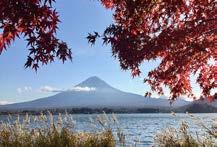
OIE Third Prize & Best in Show: Sky Russell ’20

Worldwide Week, Destination: World / Powered by
2019
RIJS Prize: Eunsoo Oh ’23

Office of Undergraduate Research and Fellowships
Special Prize: Andrew Zhang ’22

Pechakucha
As part of Harvard’s Worldwide Week, which showcases the breadth of Harvard’s global engagement across schools through a series of internationally-themed academic and cultural events, RIJS and the CGIS centers organized and hosted Destination: World / Powered by Pechakucha, starting in 2018. In this event, Harvard College students shared their stories of personal discovery and intellectual exploration made possible through experiences abroad. Pechakucha, which originated in Tokyo, follows a format of 20 images x 20 seconds, in which the images advance automatically while the presenter is talking. Presentations on Japan are listed below.
2018
Motoy Kuno-Lewis ’19, Environmental Science and Public Policy Oysters
2016 Summer Internship Program (Hotel Sekifu)
40
2017 Summer Internship Program (Kahoku Shimpo)
2018 Henry Rosovsky Undergraduate Summer Research Travel Grant
Claire Pinson ’19, Cognitive Neuroscience & Evolutionary Psychology
What is water? (omizu wa nan desu ka?)
2018 Japan Summer Science Undergraduate Research Program (Kyoto University)
Ellie Underwood ’19, Neurobiology (Re)Discovering Japan
2017 Summer Internship Program (Okinawa Institute of Science and Technology)
2018 Japan Summer Science Undergraduate Research Program (University of Tokyo)
2019
Westley Cook ’20, Social Studies and East Asian Studies
Drawing Inspiration from Rikuzentakata
2017 Summer Internship Program (ISA, Inc.)
2018 Summer Internship Program (Rikuzentakata City Mayor’s Office)
2018 Henry Rosovsky Undergraduate Summer Research Travel Grant (Rikuzentakata)
Sky Russell ’20, History of Art and Architecture
Taking the Scenic Route
2018 Summer Internship Program (ISA, Inc.)
2019 Summer Internship Program (Samurai, Inc. and ICU-Middlebury)
Japanese Language Table
Since fall 2008, RIJS has hosted a monthly Japanese language table at CGIS. Now co-hosted with USJP, the language table provides a space for an enthusiastic group of undergraduate and graduate students, postdoctoral fellows, faculty, RIJS visiting scholars, and USJP research associates to converse in Japanese and discuss a wide range of topics over lunch.
Support for Undergraduate Activities
Harvard-Radcliffe Chado Society
A student group dedicated to learning chanoyu (“Japanese tea ceremony”), this organization strives to learn the traditional ways to prepare, serve, and drink tea. While officially an undergraduate organization, the chado society also welcomes graduate students, non-student Harvard affiliates, and non-Harvard students. Participants study the Way of Tea in the tradition of the Urasenke School, and the instructors are all members of Urasenke Boston, the local affiliate of the Kyoto-based Urasenke organization. The head of the international organization is Sen Soshitsu XVI, a direct descendant of one of the first Japanese tea masters, Sen no Rikyu. In 2018-20, RIJS supported weekly meetings as well as occasional tea ceremony events.
Harvard Aikido Club
RIJS provides support to the Harvard Aikido Club (Aikikai), which brings together Harvard students to practice aikido and to study the principles and techniques behind the sport. Harvard’s oldest martial arts club, the group holds practices, classes, and seminars at the Malkin Athletic Center and the Quadrangle Recreation and Athletic Center. In 2018-20, RIJS provided support to club activities and events.
41
Undergraduate Japan Experience 2018-20
Japan Undergraduate Research Exchange Program = JUREP
Hokkaido International Foundation (Hakodate) = HIF
Kyoto Consortium for Japanese Studies (Kyoto) = KCJS
Princeton in Ishikawa (Kanazawa) = PII
Harvard Business School = HBS
Harvard Summer School = HSS
Research Institute of Economy, Trade, and Industry = RIETI
2018-19
Henry Rosovsky Summer Research Travel Grant
Westley Cook ’20
Social Sciences, “Social Capital and Disaster Recovery in Rikuzentakata”
Summer Language Study Grant
Joshua Jenkins ’20, Math/Philosophy, PII
Alexander Koller ’22, Undeclared, PII
Hannah McCormack ’20, EAS, KCJS
Jacob Moore ’22, Undeclared, HIF
Summer Intership Program in Japan
Marie Carroll ’20
History & Science / Music, Temple University Japan (Tokyo)
Yifan Chen ’21
Sociology, Showa Women’s University (Tokyo)
James Clay ’21
Linguistics, P & E Directions (Tokyo)
Esteban Flores ’20
EAS / Philosophy, Morrison & Foerster (Tokyo)
Haozhou Gu ’20
History, HBS Japan Research Center (Tokyo)
Devon Gunter ’20
Psychology, Kahoku Shimpo (Sendai)
Deni Hoxha ’21
Economics, Ise-Shima Tourism & Convention Organization (Ise)
Emily Kim ’21
EAS / VES, SIMONE, Inc. (Tokyo)
Edward Lee ’22
Undeclared, International Christian University (Tokyo)
Su Min Lee ’21
Computer Science, Internet Business Japan (Tokyo)
Okinawa Institute of Science and Technology = OIST
RIKEN Center for Brain Science = CBS
UTokyo Institute for the Physics and Mathematics of the Universe = IPMU
UTokyo International Research Center for Neurointelligence = IRCN
East Asian Studies = EAS
Molecular & Cellular Biology = MCB
Visual & Environmental Studies = VES
Shokuma Matsukata ’22
Undeclared, Robot Fund (Tokyo)
Rachel Phan ’21
ESPP, Showa Women’s University (Tokyo)
Michaela Rosen ’22
Undeclared, Tonda Bunraku (Nagahama)
Sky Russell ’20
HAA, Samurai, Inc. / ICU-Middlebury College (Tokyo / Nagano)
Leo Saenger ’22
Undeclared, RIETI (Tokyo)
Rani Shagarabi ’21
Applied Math / Economics, Jenerate Partners, Inc. (Tokyo)
Kexin Sun ’22
Undeclared, Kamonohashi Project (Tokyo)
Chang Yu ’22
Undeclared, Quantstamp (Tokyo)
Japan Summer Science Undergraduate Research Program
Natasha Abrams ’21
Astrophysics / Physics, UTokyo Kavli IPMU - JUREP (Kashiwanoha)
Simon Arango Baquero ’21
Neuroscience, RIKEN CBS (Wako)
Jenny Liu ’21
HDRB, Tokyo Institute of Technology (Tokyo)
Matthew Mardo ’20
Neuroscience, RIKEN CBS (Wako)
Vanessa Roser ’21
Neuroscience, UTokyo IRCN (Tokyo)
Hayato Shiotsu ’22
Undeclared, Hiroshima University (Hiroshima)
Joshua Stern ’21
Neuroscience, OIST (Okinawa)
42
Justin Sydloski ’19
Undergraduate Japan Experience 2018-20
Neuroscience, Hiroshima University (Hiroshima)
Jennifer Wang ’22
Undeclared, UTokyo IRCN (Tokyo)
Michelle Wang ’20
Chemistry, Hiroshima University (Hiroshima)
Hilina Woldemichael ’21
MCB, Tokyo Institute of Technology (Tokyo)
Andrew Zhang ’22
Undeclared, Hiroshima University (Hiroshima)
HSS at Doshisha University, Kyoto
Carolina Beroutsos ’21, History & Science
Alexis Boo ’22, Undeclared
Richard Brown ’22, Undeclared
Andrew Lee ’21, Computer Science
Hongshen Lee ’22, Undeclared
Ramona Park ’22, Undeclared
Jonathan Ragheb ’22, Undeclared
Hannah Starr ’24, Harvard Extension School, Social Studies
Kelyn Tyner ’21, Psychology
Henry Villarreal ’21, Psychology
Youning Zhang ’22, Emory University, Undeclared
2018 Noma-Reischauer Undergraduate Prize in Japanese Studies
Jasmine Parmley ’21, English
“Yokohama Night Clubs at Contact Zones: Mirroring Constructed Racial Divisions and Building National Identity in Postwar Japan”
2019-20
Henry Rosovsky Summer Research Travel Grant
Rachel Estell ’21
Social Sciences, “Confronting a Shrinking Population Crisis: A Threat to the Japanese Employment Paradigm”
Koji Everard ’21
History, “The Colonization of Hokkaido: Constructing the Fields of Empire”
Summer Language Study Grant
Kyle Felter ’23, Undeclared, Intermediate Japanese S-120 (HSS Online Course)
Summer Intership Program in Japan
Roger Cawdette ’22
Technological & Social Innovation, Blackship Ventures / Jenerate Partners (Online)
Anne O’Neil ’22
EAS, Bulk Homme (Online)
Ayana Yaegashi ’23
Undeclared, SIMONE, Inc. (Online)
Satoshi Yanaizu ’23
Undeclared, The Wall Street Journal (Online)
2019 Noma-Reischauer Undergraduate Prize in Japanese Studies
Devon Gunter ’20, Psychology
“The Development of Kokugo and Language Reforms During the Meiji Period”
43
Support for Graduate Student Training
RIJS supports GSAS and the future development of Japanese Studies by providing a range of fellowships and grants to Harvard graduate students.
Research and Training Support
Dissertation Completion/Supplementary Dissertation Research Grants
RIJS awards Dissertation Completion Grants to support advanced graduate students in the full-time write-up of their dissertations and Supplementary Dissertation Research Grants to provide graduate students with the opportunity to continue year-long research in Japan and to support continued research after initial support by external funding sources. In the case of non-US citizens, thus ineligible for many of the major fellowships that support fieldwork in Japan, these grants provide the core funding for their fieldwork.
For 2018-20, RIJS awarded Dissertation Completion or Supplementary Dissertation Research Grants to 26 doctoral students, 14 in 2018-19 and 12 in 2019-20, representing a cross-section of academic departments: Anthropology, Comparative Literature, EALC, EALC/HEAL, History, History of Art and Architecture, and Religion.
Summer Research Travel Grants for Graduate Students
RIJS awards Summer Research Travel Grants to allow graduate students to deepen their knowledge of Japan, maintain and improve their Japanese language skills, and develop ideas, investigate sources, and build contacts in Japan for future dissertation research. In the case of comparative projects that include Japan, graduate students also may apply for funding to conduct research in another country.
In 2018-20, RIJS gave 22 Summer Research Travel Grants to Japanese Studies graduate students in the humanities and social sciences, 10 for summer 2019 and 11 for summer 2020.
Starting in 2019-20, Wintersession Research Travel Grants were also made available to a small number of graduate students. In January 2020, RIJS supported research travel for 4 students.
Summer Language Study Grants for Graduate Students
RIJS also provides grants to graduate students (both PhD and MA) to support summer language study in programs in Japan and elsewhere. Especially in the social sciences, some students develop their interest in Japan only after entering graduate school and need additional time to build their language skills to researchlevel competence. Normally the language is Japanese, though applications for other languages are encouraged from students whose research would be furthered by another language or students who are engaged in comparative research that involves Japan.
In 2018-20, RIJS gave 23 Summer Language Study Grants to graduate students, 10 for summer 2019 and 13 for summer 2020. Due to Covid-19, no students traveled to Japan for language study in summer 2020; as an alternative, graduate students were offered grants to continue their language studies through the Harvard Summer School online courses.
The Inter-University Center for Japanese Language Studies in Yokohama
Graduate students with at least two years of Japanese language training who want to devote an academic year to full-time advanced Japanese language study may apply to the Inter-University Center for Japanese Language Studies Program (IUC), located in Yokohama. On behalf of Harvard, RIJS supports the IUC by providing a yearly membership fee of $10,000.
44
Noma-Reischauer Graduate Student Essay Prize
Each year, RIJS conducts a competition to award the Noma-Reischauer Essay Prize of $1500 for the best Harvard graduate student essay on a Japan-related topic. The Prize was established and supported from 1996 through 2010 by Kodansha Publishers in honor of Sawako Noma, then President of Kodansha, and Professor Edwin O. Reischauer. Since 2011, the prize has been funded by RIJS and awarded in conjunction with the Tazuko Monane Prize for Language Study, given by the Japanese Language Program.
In 2018-19, the Prize winner was Sara Kang, RSEA ’18 and current PhD candidate in History, for her essay “Letters from Occupied Women: Gender and Nation in the Occupation of Japan (1945-2017).” In 2019-20, the Prize winner was Feng-En Tu, EALC/HEAL, for his essay “The Island of Fragrance and the Making of the Modern Smell.”
See end of section for a detailed list of grant recipients and program participants.
Professional and Write-up Support
Professional Development
RIJS seeks to contribute to the professional development of graduate students in a variety of ways. Beginning in 2005 with the construction of the CGIS buildings, RIJS made space available for doctoral students engaged in dissertation write-up (see Advancing Research). RIJS provides funds for graduate students to meet and discuss their research in progress, and graduate students are also encouraged to interact with RIJS visiting scholars, either informally or through the Student Host Program (see Advancing Research).
In addition, RIJS provides small grants to graduate students for paper presentations at conferences or professional meetings, for the purposes of professional development and dissemination of dissertation research. Students in relevant fields may also apply for small grants that cover travel costs for job interviews held at professional meetings. RIJS awarded 16 conference attendance grants in 2018-20.
Support for Dissertation Writers Groups
RIJS recognizes that dissertation writing can be a lonely pursuit and that many students benefit from support and comments from their peers. In 2018-20, the Institute continued to make funding available to groups of graduate students in Japanese Studies looking to meet on a regular basis to discuss their dissertations.
Support for Student Groups
Harvard Buddhist Studies Forum
The Harvard Buddhist Studies Forum (HBSF) is a long-standing lecture series that invites scholars to present on a topic related to the field of Buddhist Studies, while promoting a wide range of disciplines, geographical areas, and methodologies. As Buddhist Studies is a highly interdisciplinary and cross-regional field, RIJS joins with other programs at Harvard in supporting scholarly activities in this area of research. In 2018-20, the Institute contributed support to the following lectures:
15 NOVEMBER 2018
Barbara Ambros, University of North Carolina at Chapel Hill
On Talking Terms with the Venerable Buddha: Material and Bodily Practices of a Jōdo Shin Healer
1 APRIL 2019
Melissa Ann Curley, Ohio State University
From Dukkha to Disregulation: Buddhist Practice as a Treatment for Stress
45
Harvard East Asia Society
The Harvard East Asia Society is organized by students in the RSEA program and is open to all those with an interest in East Asian cultures, history, and society. Students organize individual talks and an annual spring conference designed to provide an interdisciplinary forum for graduate students from the US and elsewhere to exchange ideas and discuss current research on East Asia with peers, professors, and professionals. In 2019 and 2020, the conference was co-sponsored by the Asia Center, Fairbank Center, Korea Institute, Weatherhead Center, and RIJS.
The 22nd annual HEAS graduate student conference was held 8-9 February 2019 on the theme, “Voice and Silence: Memory in East Asia.” Ezra Vogel and Stephen Owen gave the keynote addresses. The 23rd annual conference was held 8-9 February 2020 on the theme, “Borders and Boundaries in East Asia.” Mark Elliot and Karen Thornber gave the keynote addresses.
Curriculum and Teaching
Curriculum
Enrichment Grants
In the educational experience of Harvard College students, General Education (Gen Ed) courses, formerly Core courses, play a crucial and central role. As such, RIJS mounted a major initiative to increase the number of these courses dealing with Japan. The Institute also supported non-Japan specialists to add material on Japan to Harvard College courses they already offered or were developing. Cumulatively these courses have played an important role in bringing Japan more fully into the undergraduate educational experience.
Harvard College Core/Gen Ed Courses Developed under the Curriculum Enrichment Grant Program
Ryūichi Abé, EALC
Core: Foreign Cultures, Buddhism and Japanese Culture
Gen Ed: Aesthetic and Interpretive Understanding, Buddhism and Japanese Culture
Theodore C. Bestor, Anthropology
Core: Foreign Cultures, Tokyo
Gen Ed: Societies of the World, Tokyo
Mary C. Brinton, Sociology
Gen Ed: Societies of the World, Inequality and Society in 21st-Century East Asia
Andrew Gordon, History
Core: Historical Study, Tradition and Transformation in East Asian Civilization: Japan
Gen Ed: Societies of the World, Japan in Asia and the World
Shigehisa Kuriyama, EALC
Gen Ed: Culture and Belief, Medicine and the Body in East Asia and Europe
Ian J. Miller, History
Core: Historical Study, Japan’s Modern Revolution
Gen Ed: Societies of the World, Japan’s Modern Revolution (2010-11) / Japan’s Samurai Revolution (2011-12 and beyond)
48
46
Support for Departmental Teaching
RIJS encourages faculty and departments to invite outstanding scholars or other specialists of Japan to Harvard in order to enhance the educational experience in their particular field. Typically, visitors appear in classes and meet with faculty and students. RIJS also supports course excursions, travel, and other related activities. The Institute provides funding to these visits and activities, as well as funding for Harvard faculty to travel to Japan for purposes that will ultimately contribute to the educational experience of students.
The interest in Japan is broad among Harvard faculty and students and among the general public, extending to numerous art forms associated with Japanese culture, including film, kabuki, Noh drama, martial arts, tea ceremony, ikebana, and many others. RIJS plays an active role in sponsoring activities in which these cultural forms are linked to the educational mission of the University.
During 2018-20, departmental teaching was supported in the following ways:
Department of East Asian Languages and Civilizations
As part of his spring semester course “Traditional Japanese Literature: From the Dawn of Writing to the Dawn of Modernity,” David Atherton led a class trip to the Metropolitan Museum in April 2019 to tour the exhibition The Tale of Genji: A Japanese Classic Illuminated, curated by Melissa McCormick and John Carpenter. A second trip for undergraduate students concentrating in East Asian Studies was led by Ryuichi Abe and organized by the Department of EALC.
Harvard Art Museums
In April 2020, the Harvard Art Museums launched an online course on edX, titled “Japanese Books: from Manuscript to Print.” Taught by Melissa McCormick and Rachel Saunders, this course explored the meaning of “book” in Japanese culture and history, drawing from scrolls and albums found inside the 13th-century Buddhist sculpture of Prince Shōtoku, as well as various representations of The Tale of Genji. This course attracted over 20,000 enrollees all over the world.
Harvard Graduate School of Design
From 10-18 February 2019, Toshiko Mori led a group of GSD students on a trip to the Seto Island Sea (Setouchi) region of Japan for their spring 2019 architecture studio course. Focusing on Kenzo Tange’s Gymnasium, a Modernist building commissioned by Kagawa Prefecture in 1964, the studio explored the complex and rich context surrounding this endangered building, proposing the potential for a new program, new use, and new design through intervention, recontextualization, reorientation, contraction, or expansion.
The studio opened with a visit to the Tange Archive in Loeb Library Special Collection at GSD to study drawings of Tange buildings and understand the style and planning behind these precedent projects. Based on initial research, students proposed new programs for the gymnasium in preparation for their trip to Japan. During the trip, the group visited sites in Tokyo and Takamatsu, Kagawa, as well as the Taniguchi Project in Marugame, Sakaide Artificial Ground, Noguchi Studio in Mure, Inujima, and Naoshima. Using their observations and information collected on the trip, students created models and presented their final proposals for the Gymnasium.
For her spring 2020 architecture studio course “Making Next to Forest,” Toshiko Mori led a group of GSD students to Hokkaido, Japan from 7-16 February 2020. After researching Hokkaido, its economy, and its forestry and biomaterial industries, students worked together to propose plans for turning a site abandoned by Tokai University into a center for forestry and wood product studies. In addition, they designed a museum in the township of Higashikawa, which would be constructed using local wood and house a chair collection donated by the Oda family.
49 47
The Hokkaido trip began with a visit to Higashikawa for the Oda chair collection. The group then visited Asahikawa to observe the lumber yard, wood production factory, wood testing lab, and wood building research institute. Along with the Tokai University site, they also toured Asahikawa Station and Asahikawa City Museum, among other institutions related to their field research. The trip concluded with a visit to Asahikawa University to exchange ideas with local students and present their design proposals, as well as a brief visit to Tokyo to explore various wood buildings in the city.
Academic Exchange Agreements
RIJS has established a number of academic exchange agreements with universities in Japan. The initial agreement was made with Kokugakuin University, beginning in July 2000 and renewed every five years. RIJS has hosted a number of visiting scholars from Kokugakuin, and Harvard graduate students in Japanese Studies have received accommodations and extensive assistance in their research at Kokugakuin.
In fall 2011, RIJS concluded exchange arrangements with Taishō University and Rissho University for the purpose of promoting academic research. Both agreements include the exchange of faculty members, the exchange of advanced graduate students engaged in dissertation research, and other items deemed mutually beneficial.
Graduate Research and Training
2018-19
Dissertation Completion Grants (via GSAS)
Julia Cross, EALC
Stolen and Worshipped relics: Enshrinements of the Buddhas Body in Kamakura, Japan
Max Durayappah-Harrison, Anthropology
Remaking Rural Japan
Subodhana Wijeyeratne, History
Red Sun Rising: People and Places in the History of the Japanese Space Program 1920-2003
Supplementary Dissertation Research Grants
Manuel Azuaje-Alamo, Comparative Literature
Performing the Author-Translator Across Shores: Japanese Refractions of World and Latin American Literature in the 20th Century
Yusung Kim, EALC
Cold War Techno-Fantasy: Displays on the Futures and the New Environments in Japan and South Korea
Maria Joelle Tapas, EALC
Modelling Modernity in Japanese Children’s Media
Kimberlee Sanders, EALC
Intimate Listening: Tuning into Voices of 20th and 21st Century
Japanese Popular Media
Rebecca Voelcker, VES
Land Cultivation and Visual Culture
Summer Research Grants
Keung Yoon Becky Bae, EALC
A Hall of Mirrors: The Origins and Refractions of Film Regulation Across the Japanese Empire, 1939-1945
Leah Justin-Jinich, EALC
Understanding a Sense of Place: Famous Sites, Tourism and Comic
Illustrated Poetry from the Edo Period (1603-1868)
Juhee Kang, EALC-HEAL
Working Scientifically in Twentieth-century Japan
Lingling Ma, EALC
The Transnational Flow of “Life” in Japanese and Chinese Modernisms
Naohito Miura, Religion
Schisms and Continuities in Japanese New Religions and Shinto
Donald O’Keefe, MArch, GSD
From City Plan to Communal Form: The Urban Design of Fumihiko Maki, Sachio Otani and Masata Otaka, 1962-1974
50
48
Yuxin Qin, Religion
Graduate Research and Training 2018-20
Understanding and Practicing Familial Relationships: Kōdō Kyōdan’s Efforts in Contemporary Japan
David Song, RSEA
Visas, Bureaucrats and Activists: Negotiating Belonging Among Foreign Workers in Japan
Haruka Umetsu-Cho, Religion
Meiji-Taisho Japanese Literature Archival Research in Yamanashi, Hokkaido, and Gifu, Japan
Yuchen Chloe Yan, RSEA
Electrifying Ginza: The Rise of an Urban Place in Interwar Japan
Summer Language Study Grants
Daniel Borengasser, EALC, IUC
Yedong Chen, EALC, IUC
Guttorm Gundersen, EALC, KCJS
Gene Kim, RSEA, IUC
Sara Klingenstein, Religion, IUC Profesional Tutorial
Yitian Li, EALC, HIF
Xiaoyi Peng, RSEA, IUC
Maria Salvador Cabrerizo, HAA, KCJS Classical Program
Casey Stevens, RSEA, KCJS
Jalem Towler, RSEA, IUC
Conference Attendance Grants
Manuel Azuaje-Alamo, Comparative Literature
American Literature in the World Conference (New Haven, CT)
Katie Callam, Historical Musicology
Society of Music Annual Conference (New Orleans, LA)
Patrick Chimenti, EALC
CUBASGA East Asian Conference (Boulder, CO)
Max Durayappah-Harrison, Anthropology
International Pragmatics Conference (Hong Kong)
Amin Ghadimi, EALC-HEAL
British Association of Japanese Studies Conference (Sheffield, UK)
Ryan Glasnovich, EALC-HEAL
Annual Meeting of the Association of Asian Studies (Denver, CO)
Rui Hua, EALC-HEAL
Annual Meeting of the Association of Asian Studies (Denver, CO)
Jonas Ruegg, EALC/HEAL
International Conference of Asian Scholars (Leiden, Netherlands)
Eric Swanson, EALC
Buddhism and Ritual Performance in Pre-modern Japan Conference (Montreal, Canada)
Susan Taylor, Anthropology
American Anthropologists Annual Meeting (San Jose, CA)
Catherine Tsai, EALC-HEAL
Japanese Studies Association Conference (Honolulu, HI)
Floris van Swet, EALC-HEAL
British Association of Japanese Studies Conference (Sheffield, UK)
Yuchen Chloe Yan, RSEA
Imaging East Asia: Constructing Knowledge through the Visual (Santa Barbara, CA)
2018 Noma-Reischauer Graduate Prize in Japanese Studies
Sara Kang, RSEA (AM 2018), current PhD candidate in History
“Letters from Occupied Women: Gender and Nation in the Occupation of Japan (1945-2017)”
2019-20
Dissertation Completion Grants (via GSAS)
Yuting Dong, EALC-HEAL
Empire on the Ground: The Co-Production of Japanese Railway Towns in Northeast China (1905-1953)
Dana Mirsalis, EALC
Female Shinto Priests: Gender and Labor in Contemporary Shinto
Kimberlee Sanders, EALC
Intimate Listening: Tuning into the Voices of 20th and 21st Century
Japanese Popular Media
Maria Joelle Tapas, EALC
Schooling Artlessness: New Media and Children’s Arts Education in Early 20th Century Japan
Haruka Umetsu Cho, Religion
The Newly Forming Flesh of Women and the Divinity: A Theological
Reading of Modern Japanese Fiction
Rebecca Voelcker, VES
Field Work: Land, Cultivation, and Culture
Supplementary Dissertation Research Grants
Daniel Borengasser, EALC
Hall of the Lotus King Sculpture and Multiplicity in Early Medieval Japan
49
Graduate Research and Training 2018-20
Yusung Kim, EALC
Cold War Techno-Fantasy: Displays on the Futures and the New Environments in Japan and South Korea
Jesse LeFebvre, EALC
The Antifragile Kannon-The Proliferation of Hasedera and the Hasedera Kannon in Medieval Japan
Helen Swift, HAA
Founding Yoga: Juroda Seiki’s Vision for a “Western-style School” of Japanese Painting
Susan Taylor, Anthropology
Used Books and the Market for History: An Ethnography of Jimbocho, Tokyo
Bohao Wu, History
Sino-Japanese Rapprochement and Competition in Southeast Asia
1955-1974
Wintersession Research Grants
Ismail Buffins, MDiv, HDS
Sacred Geography: Moral Philosophy, Renunciation, and Pilgrimage in Japanese Esoteric Buddhism
Zhe Carrie Geng, Comparative Literature
Mental Health and Disability as Sites of Protest in East Asian and Asian
American Literature
Sara Kang, History
“Enemy Women” and Gendered Violence in the Decolonization of the Japanese Empire
Summer Research Grants
Patrick Chimenti, EALC
(Re) Constructing the Periphery: The Postcolonial Imaginary in Japanese Print and Visual Media
Charlotte Ciavarella, EALC-HEAL
Nomadic Modernity
Yuting Dong, EALC-HEAL
Empire on the Ground: The Co-Production of Japanese Railway Towns in Northeast China (1905-1953)
Leah Justin-Jinich, EALC
Ties that Bind: Exploring Complex Social Relationships within Japanese
Inscribed Paintings
Juhee Kang, EALC-HEAL
Translating the Universal Science: Mental Tests in Twentieth-century Japan
Mari Kishi, EALC
Japanese Queer Cinema in the 1990s
Joshua Linkous, EALC-HEAL
Bodily Conquest of Nature: Mt. Hakkoda as Imperial Laboratory
Janet Louie, EALC
Sounding the Transpacific: A Study of Cold War Film and Media in Hong Kong, Japan and America
William Sack, History
Multiethnicity and Successor Statehood: The Great Guryo Plan, 1920-1922
Yingxue Wang, HAA
Technologies of Worldmaking: The Genesis of Early Japanese Buddhist Material Culture
Jeremy Woolsey, EALC
Social Fragmentation and Ironic Communication: Subcultural Magazines in 1970s-1990s Japan
Summer Language Study Grants
Yedong Chen, EALC, IUC (Online)
Maria Salvador Cabrerizo, HAA, IUC (Online)
GSAS Tuition Waivers for HSS Courses (Online)
Charlotte Chiavarella, EALC-HEAL, Korean S-120
Mari Kishi, EALC, Korean S-120
Benjamin Landauer, RSEA, Japanese S-120
Jialu Li, Government, Japanese S-120
Wei Li, RSEA, Japanese S-120
Joshua Linkous, EALC-HEAL, Japanese S-120
Isabel McWilliams, HAA, Japanese S-120
Michael Norton, HAA, Japanese S-120
Hwei Ru Ong, EALC, Japanese S-120
Boya Ouyang, RSEA, Japanese S-120
Kaiyi Cathy Shen, EALC, Japanese S-120
Yi Zhang RSEA, Japanese S-120
Yuyan Zhang, RSEA, Japanese S-120
Conference Attendance Grants
Rui Hua, EALC-HEAL
Historical Association Annual Conference (New York, NY)
Janet Louie, EALC
Mechademia Queer(ing) North American Conference (Minneapolis, MN)
Yusuke Tsuzuki, RSEA
Workshop on Constitutional Revision at Keio University (Tokyo, Japan)
2019 Noma-Reischauer Graduate Prize in Japanese Studies
Feng-en Tu, EALC-HEAL (PhD 2019)
“The Island of Fragrance and the Making of the Modern Smell”
50
Courses on Japan at Harvard 2018-20
Faculty of Arts and Sciences
General Education (Gen Ed)
AESTHINT 53/GENED 1042
Anime as Global Popular Culture
Tomiko Yoda
AESTHINT 63
East Asian Cinema
Jie Li
GENED 1083
Permanent Impermanence: Why Buddhists Build Monuments
Jinah Kim and Yukio Lippit
GENED 1119
Law, Politics, and Trade Policy: Lessons from East Asia
Christina Davis
SOCWORLD 33
Tokyo
Theodore Bestor
SOCWORLD 43
Japan’s Samurai Revolution
Ian Miller and David Howell
USWORLD 38
Forced to Be Free: Americans as Occupiers and Nation-Builders
Andrew Gordon and Erez Manela
Freshman Seminars
FRSEMR 61K
Life Lessons from Professional Killers: What We Can Learn from the Samurai
David Atherton
FRSEMR 62Z
Buddhist Enlightenment: Visions, Words, and Practice
Ryūichi Abé
FRSEMR 70L
Ancient East Asia: Contested Archaeologies of China, Korea, and Japan
Rowan Flad
FRSEMR 70Y
Asian America
Diana Eck
FRSEMR 71D
Zen and the Art of Living: Making the Ordinary Extraordinary
James Robson
Anthropology
ANTHRO 2682
Anthropology of Urbanism: Japan in Comparative Perspective
Theodore Bestor
Comparative Literature
COMPLIT 147
Global Crime Fiction: Tackling Crime, Corruption, and Social Disintegration
Karen Thornber
COMPLIT 277
Literature, Diaspora, and Global Trauma
Karen Thornber
East Asian Languages and Civilizations
East Asian Studies
EASTD 97AB
Introduction to the Study of East Asia: Issues and Methods
Ryūichi Abé
EASTD 98B
Japan and the World
Shigehisa Kuriyama
EASTD 98B
Japan and the World
Susan Pharr
EASTD 140
Major Religious Texts of East Asia
Ryūichi Abé
EASTD 141
East Asian Religions: Traditions and Transformations
James Robson
EASTD 152
Tea in Japan / America
Melissa McCormick
EASTD 170
Medicine and the Body in East Asia and in Europe
Shigehisa Kuriyama
EASTD 196
Political Parties of East Asia
Daniel Koss
EASTD 260
The Lotus Sutra: Texts, Narratives, and Translations
Shigehisa Kuriyama
EASTD 261
Advanced Readings in East Asian Art
Melissa McCormick
East Asian Buddhist Studies
EABS 245R
Ritual and Text in Japanese Buddhist Literature
Ryūichi Abé
East Asian Film & Media Studies
EAFM 111
East Asian Media Studies
Alexander Zahlten
EAFM 141
Japanese Language and Visual Media
Wesley Jacobsen and Alexander Zahlten
EAFM 201
Media Mix: Representations and Meaning Between Media in Japan
Alexander Zahlten
53
51
Courses on Japan at Harvard 2018-20
EAFM 202
Rip and Tear – The Body as Moving and Moved Image in Japanese Film
Alexander Zahlten
EAFM 204
Three Times +1. Transitional Moments in Film and Media Culture in Japan
Alexander Zahlten
Japanese Language Courses
JAPAN BAB (2 courses each year)
Elementary Japanese
Yuko Kageyama-Hunt
JAPAN 106A
Classical Japanese
Edwin Cranston
JAPAN 106C
Later Classical Japanese
Edwin Cranston
JAPAN 120AB (2 courses each year)
Intermediate Japanese I
Takuro Hashimoto 2018-19 / Naomi Asakura 2019-20
JAPAN 130AB (2 courses each year)
Intermediate Japanese II
Tomoko Graham
JAPAN 140AB (2 courses each year)
Advanced Modern Japanese
Ikue Shingu
JAPAN 150AB (2 courses each year)
Readings and Discussion in Japanese Social Sciences
Ikue Shingu
JAPAN 210AB (2 courses each year)
Reading Scholarly Japanese for Students of Chinese and Korean
Wesley M. Jacobsen
Japanese History
JAPANHIST 120 (Cross-listed with HDS)
Japanese Religions in the 20th and 21st Centuries
Helen Hardacre
JAPANHIST 214R (Cross-listed with HDS)
Major Issues in the Study of Japanese Religions
Helen Hardacre
JAPANHIST 270
Early Modern Japanese History
David Howell
Japanese Literature
JAPANLIT 124
The Tale of Genji in Word and Image
Melissa McCormick
JAPANLIT 162
Girl Culture, Media, and Japan
Tomiko Yoda
JAPANLIT 170
Traditional Japanese Literature: From the Dawn of Writing to the Dawn of Modernity
David Atherton
JAPANLIT 270
Topics in Modern and Contemporary Japanese Fiction
Tomiko Yoda
JAPANLIT 271
Topics in Gender and Culture in Japan
Tomiko Yoda
JAPANLIT 281
Medieval Japanese Literature and Culture
David Atherton
Government
GOV 1270
Government and Politics of Modern Japan
Daniel Smith
GOV 2148
Civil Society, West and East
Susan Pharr and Grzegorz Ekiert
GOV 2240
Comparative Political Institutions
Daniel Smith
History
HIST 1023
Japan in Asia and the World
Andrew Gordon and David Howell
HIST 1610
Environments: China, Japan, Korea
Ian Miller
HIST 2651
Japanese History
Andrew Gordon
HIST 2653
Historiography of Modern Japan
Andrew Gordon
History of Art and Architecture
HAA 18J
Introduction to Japanese Architecture
Yukio Lippit
HAA 83
Buddhist Monuments
Jinah Kim, Yukio Lippit, and Eugene Wang
HAA 286S
The Shoso-in Treasury
Yukio Lippit, Eugene Wang, and David Roxburgh
HAA 188P
Edo Painting
Yukio Lippit
54
52
Courses on Japan at Harvard 2018-20
HAA 282S
Japanese Buddhist Sculpture
Yukio Lippit
History of Science
HISTSCI 183
Engineering East Asia: Technology, Society, and the State
Victor Seow
Linguistics
LING 173
Structure of the Japanese Language
Wesley Jacobsen
LING 174
Tense and Aspect in Japanese
Wesley Jacobsen
Religion
REL 14 (Cross-listed with HDS)
Studying Religion and Media
Helen Hardacre
Social Studies
SOCSTD 98NQ
Global East Asia
Nicole Newendorp
Sociology
SOCIOL 1174
Inequality and Society in Contemporary Japan
Hilary Holbrow
SOCIOL 2112
Men, Women, and Work
Mary Brinton
SOCIOL 3323
Social Demography Workshop
Mary Brinton and Jason Beckfield
SOCIOL 3328
Gender Inequality Workshop
Mary Brinton and Jason Beckfield
Visual and Environmental Studies
VES 183
Art Cinema/Counter Cinema: The Rebirth and Revolution of Post-WWII Japanese Cinema, 1950-1979
Haden Guest
Harvard Divinity School
HDS 3958 (Cross-listed with EALC)
Japanese Religions in the 20th and 21st Centuries
Helen Hardacre
HDS 3961 (Cross-listed with EALC)
Major Issues in the Study of Japanese Religions
Helen Hardacre
HDS 2043 (Cross-listed with Religion)
Studying Religion and Media
Helen Hardacre
Harvard Graduate School of Design
HIS 4377
Competing Visions of Modernity in Japan
Seng Kuan
STU 1315
Making Next to Forest
Toshiko Mori
STU 1320
Studio Abroad: Small is Big; Newborn Typologies from the City without a Manifesto
Sosuke Fujimoto and Kazuaki Yoneda
STU 1505
Osaka – World Expos as Transformative Engine: Potentials for the Regular City
Joan Busquets and Dingliang Yang
SCI 6601
Tectonic Tradition in Japan
Mitsuhiro Kanada
Harvard Law School
HLS 2670
Human Rights Law in Japan
J. Mark Ramseyer
Harvard Extension School
HIST E-1842
East Asian Environments: China, Japan, Korea
Ian Miller
HIST E-1851
Japan in Asia and the World
Andrew Gordon and David Howell
HSCI E-146
Medicine and the Body in East Asia and in Europe
Shigehisa Kuriyama
55 53
Ties to the Community
Building Social and Intellectual Networks on Campus
Like all of Harvard’s regional and international centers, the Reischauer Institute of Japanese Studies has a university-wide mandate—to build ties with the broader Harvard community through collaboration with other Harvard centers and departments to sponsor programs and activities relating to Japan. RIJS serves as a clearinghouse for Japan-related endeavors; collaborates in the planning and organization of events and/or research programs; funds the Japan component of activities organized by other units or other cost-sharing; and advertises events and/or suggests participants. Such collaborations create and sustain social and intellectual networks across the University among people with intersecting interests.
RIJS/USJRP Annual Fall Reception
To create contexts within which people with common interests can meet and share ideas, the Institute holds a series of annual activities. Every year, RIJS holds a Fall Reception together with the Program on US-Japan Relations to introduce new faculty and affiliates, visiting scholars, postdoctoral fellows, graduate students, staff, and members of the wider community whose research relates to Japan. On 11 September 2019, nearly 200 guests filled the Japan Friends of Harvard Concourse in CGIS South to welcome the new academic year. Due to the Covid-19 pandemic, no Fall Reception was held in 2020.
Annual New Year’s Gathering
The early days of the New Year are a time of major celebration in Japan. In keeping with its cultural tradition, RIJS holds an annual shinnenkai for Harvard faculty, students, affiliates, staff, and their families and guests, including those affiliated with the other Asia-related centers. The party features Japanese food, including the traditional pounded rice balls (mochi) and garnishes prepared by RIJS visiting scholars and their families.
The Institute’s electric mochi-making machine featured during this event is also, on occasion, called into service by Japanese language instructors seeking to give Harvard students a unique cultural and culinary experience.
Fostering Networks in the Boston-Cambridge Community and Beyond
One of the greatest resources for Harvard’s faculty and students is the sheer concentration of knowledge and human resources relating to Japan in the greater Boston-Cambridge area. Because RIJS has long included area institutions’ scholars in its research activities, the networks linking Harvard faculty and students to scholars at nearby institutions are exceptionally vast. Harvard graduate students seek out faculty at local institutions for advice on their work and benefit from these scholars’ inclusion in RIJS activities. These networks lead to new ideas, academic jobs for Harvard graduate students, new faculty for Harvard, advice for Harvard College thesis writers, and access to data or archival resources elsewhere.
54
Associates in Research
Because of the mutual benefits for the research community at Harvard and the local Japanese Studies world, RIJS offers informal Associate-in-Research status to scholars and experts in various disciplines and fields relating to Japan. These scholars are based at MIT, Tufts University, Boston University, the MFA, and many other institutions, mainly in the Northeast region. Informal appointees receive library privileges and may attend Institute activities. These informal appointments are approved by the Executive Director after submission of a written application and curriculum vitae. Further, the appointments must be renewed annually. For a complete list of RIJS Associates in Research in 2018-20, see below.
At the annual Associates Dinner, Associates in Research are able to come together for a meal and conversation with RIJS faculty, visiting scholars, postdocs, and staff. Each dinner features a presentation by a noted scholar. On 4 October 2019, this event coincided with Japan Forum presentation by Carol Gluck, George Sansom Professor of History, Columbia University, titled “Postwar Japan: A Pre-Postmortem.” During the dinner, Professor Gluck spoke on “A Grand Unified Theory of Japanese History.” There were 202 Associates in Research during 2018-20. They are indicated at the end of this section, along with their affiliations and research topics.
Japan Society of Boston
RIJS maintains close relations with the Japan Society of Boston (JSB), the oldest Japan Society in the United States. JSB events are often of interest to Harvard faculty and graduate students and, in some cases, contribute directly to their research.
JSB holds an annual gala dinner, attended by many RIJS-affiliated Harvard faculty and other members of the RIJS community. The 2019 Annual Dinner was held on 26 April 2019, with the special theme “Celebrating 60 Years of Boston and Kyoto: A Legacy of Friendship, Culture, and Peace,” in recognition of the 60th anniversary of the sister-city relationship between Boston and Kyoto. The 2020 Annual Dinner was postponed to 2021 due to the Covid-19 pandemic.
Community Outreach
In August 2019, RIJS received a generous gift from New York-based landscape architect and artist Marc Peter Keane, a series of three bontei sculptures. Installed throughout campus in CGIS South 2nd floor concourse, CGIS Knafel 2nd floor concourse, and the Center for the Study of World Religions, respectively, these sculptures symbolize the longstanding connection between Harvard and Japan. Photos and details can be found on the next page.
The Association for Asian Studies Annual Conference was scheduled to be held in Boston from 19-22 March 2020. During this event, RIJS planned to host an institute reception and, in cooperation with the Department of EALC, a memorial reception for Howard Hibbett. Due to Covid-19, the conference was ultimately cancelled.
55
Maintaining Ties with Organizations Abroad
RIJS maintains an extensive network of relationships with organizations in Japan and elsewhere abroad. The RIJS director and staff regularly meet with representatives of these organizations and, where appropriate, arrange sessions for interested Harvard faculty and students to meet visitors as well. These visitors represent the broad range of activities involving Japanese Studies, faculty research and curricular interests, and student opportunities, as well as serve as part of the Institute’s larger mission of promoting cultural and intellectual ties between the US and Japan.
In February 2019, delegations from Iwate University (Rikuzentakata) and The University of Tokyo International Research Center for Neurointelligence visited RIJS to discuss summer internships and other exchange opportunities for undergraduate students. During this month, Executive Director Gavin H. Whitelaw also met with the Kyoto Consortium for Japanese Studies (KCJS) board of directors to plan for language programs for the upcoming academic year.
In March 2019, the Institute supported Harvard University President Lawrence S. Bacow’s trip to Asia, including visits with several Harvard alumni and university leaders in Japan.
In December 2019, as part of JDA project activities, RIJS welcomed high school and college faculty, librarians from public or private libraries, and students and scholars from universities in Japan to come together at Harvard for the workshop “Using the Japan Digital Disasters Archive in the Classroom: A Workshop on Teaching about Japan and about Disasters Digital Research.” As part of this workshop, delegations from Tohoku University and Kumamoto University were invited to give presentations on their research related to natural disasters in Japan. This event was organized by Andrew Gordon and Katherine Matsuura and cosponsored by the International Research Institute of Disaster Science (IRIDeS) of Tohoku University. Details can be found on page 32.
To commemorate Emperor Naohito’s accession to the throne in 2019, RIJS hosted a series of workshops organized by Helen Hardacre on enthronement ceremony and the Daijōsai. In fall 2018, the theme was “Myth and Ritual in Ancient Japan,” and in fall 2019, “The Idea of Antiquity in Modern Japanese Religious Culture.” These workshops were co-sponsored and attended by scholars from the Kokugakuin University Center for Kojiki Studies, Kokugakuin Institute for Japanese Culture and Classics, and Kokugakuin University Museum. Details for each event can be found on pages 21 and 25.

The Ploughman’s Dream
Marc Peter Keane, 2018 bark & slate, brushed aluminum tray, 36”
CGIS South Building, 2nd Floor

The Ploughman’s Dream II
Marc Peter Keane, 2018
bark & slate, patinaed steel tray, 36”
CGIS Knafel Building, 2nd Floor

Where Forest Meets Field
Marc Peter Keane, 2018 bark & wood slivers, black walnut tray 30” Center for the Study of World Religions Photos from https://www.mpkeane.com.
56
Scott W. Aalgard
Wesleyan, Asst. Prof. of East Asian Studies
Critical practice and visions of community in modern and contemporary Japanese cultural production
Marié Abe
BU, Asst. Prof. of Music
Intersection of sound, public space, and social difference in contemporary Japanese urban life through ethnographic analysis of chindon-ya
Barbara R. Ambros
UNC Chapel Hill, Prof. of East Asian Religions
Animals and religion in contemporary Japan; the life and teachings of a contemporary Shinshu healer
Galen D. Amstutz
Independent Scholar; Adj. Faculty, Inst. of Buddhist Studies
New historical overview of Shin Buddhism
Marnie S. Anderson
Smith, Assoc. Prof. of History
Social, political, and legal history of Meiji Japan with focus on gender
Anna V. Andreeva
Heidelberg, Karl Jaspers Centre, Res. Assoc. in Japanese History
Japanese Buddhism, history of medicine, and gender in medieval Japan
Yuko Aoyama
Clark, Prof. of Geography; Assoc. Provost and Dean of Res., Office of Academic Affairs
Globalization, social innovation, and transnational social entrepreneurship
Bruce P. Baird
UMass Amherst, Assoc. Prof. of Japanese Butō, Japanese theater, intellectual history, and new media
Mikael Bauer
McGill, Asst. Prof. of Japanese Religions
Japanese premodern Buddhism and history
Jeffrey P. Bayliss
Trinity, Assoc. Prof. of History; Chair, Dept. of History
History and perception of Korean athletes who participated in Japanese sports during the colonial period
Thomas U. Berger
BU, Assoc. Prof. of Int’l Relations
The US alliance system in Europe and East Asia in comparison
Rosemarie Bernard
Waseda, Asst. Prof. of Anthropology and Japanese Studies
Anthropology, art, emperorship, law, religion, ritual and politics, and Shinto
Associates in Research 2018-20
Laura E. Bernhart-Wong
Independent Scholar; FFD Koordinatorin, German Foreign Ministry
Intercultural communication between Western Europe, East Asia and the North Americas
Joanne R. Bernardi
Rochester, Prof. of Japanese and Film and Media Studies
Re-Envisioning Japan (digital humanities project); Routledge Handbook of Japanese Cinema (co-editor); Juzō Itami (monograph)
Victoria Lyon Bestor
North American Coordinating Council on Japanese Library Resources, Exec. Director Library resources; development of new internetbased Open Source materials on Japan in support of undergraduate education
Phyllis Birnbaum
Independent Scholar; Writer Biography of Okakura Tenshin
Herbert P. Bix
SUNY Binghamton, Prof. Emeritus of History and Sociology
America’s path to perpetual war, 1820s-present
Thomas S. Blackwood
Tokyo International, Inst. for Int’l Strategy, Prof. of Sociology
Japanese language schools as a “side-door” for labor immigration
Verena K. Blechinger-Talcott
Free Univ. of Berlin, Prof. of Japanese Politics and Political Economy
Patterns of modernity in East Asia; collaborative project on the emergence of global governance due to epidemics
Mark L. Blum
UC Berkeley, Prof. of Buddhist Studies and Shinjo Ito Distinguished Chair in Japanese Studies History of nenbutsu thought, practice, and performance
Robert Borgen
UC Davis, Prof. Emeritus of East Asian Languages and Culture
Early Japanese cultural relations with China
Daniel Botsman
Yale, Prof. of History
Emancipation in 19th-century Japan; translations of recent work on Tokugawa social history
Ethan D. Bushelle
Western Washington, Visiting Asst. Prof., Dept. of Liberal Studies
Buddhist understandings of nature in premodern Japan
Patrick Caddeau
Princeton, Dean, Forbes College
Tale of Genji reception, ecocriticism
Gavin J. Campbell
Doshisha, Prof. of American Studies
US-Japan cultural encounters, 1830s-1890s
Matthew M. Carlson
Vermont, Assoc. Prof. of Political Science
Political corruption and scandals, campaign finance
Haeng-ja Sachiko Chung
Okayama, Discovery Prgm. for Global Learners, Assoc. Prof.
Program building and contents education in English and Japanese at Japanese universities
Ellen P. Conant
Independent Scholar
Article reappraising lives and careers of Ernest and Mary Fenollosa titled, “Unraveling the Fenellosa Narrative”
Ian Condry
MIT, Prof. of Japanese Cultural and Media Studies
A comparative ethnographic study of diverse music scenes (Tokyo, Boston, Berlin) as emergent social economies
Thomas D. Conlan
Princeton, Prof. of East Asian Studies and History Court, ritual, and politics in sixteenth-century Japan
Theodore F. Cook
William Patterson, Prof. of History; Director, Asian Studies Program
War and memory in shaping Japanese culture, especially the Asia-Pacific War
Teruko Craig
Tufts, Senior Lecturer Emerita in Japanese
Translating essays by Fukuzawa Yukichi
Michael P. Cronin
William and Mary, Assoc. Prof. of Japanese Studies
Historical link between Osaka and the Korean island Jeju, figure of posthuman in cultural production, alternate histories
Jennifer Cullen
Northeastern, Lecturer, Dept. of Cultures, Societies, and Global Studies
Shojo manga and incest films of Shinoda Masahiro
Michael A. Cusumano
MIT Sloan, Sloan Management Review, Distinguished Prof. of Management
Entrepreneurship in Japan
Brett de Bary
Cornell, Prof. of Asian Studies and
57
Associates in Research 2018-20
Comparative Literature
Practice and theory of translation for contemporary Japanese intellectuals
Jennifer F. deWinter
WPI, Assoc. Prof. of Rhetoric; Director, Interactive Media and Game Development Prgm. Japanese video game industry, Japanese robotics and HCI, and Japanese media studies (anime, manga, games)
Wiebke Denecke
BU, Assoc. Prof. of East Asian Literatures
Role of Sino-Japanese literature/kanshinbun in early Japanese literary culture
Frederick R. Dickinson
UPenn, Prof. of History
Global history of modern Japan
Rachel DiNitto
Oregon, Assoc. Prof. of Japanese Literature
Cultural production after the 2011 disaster in Japan
Eric G. Dinmore
Hampden-Sydney, Elliot Assoc. Prof. of History
Monograph on resource anxieties in 20th-century Japan, “Legacies of the Co-Prosperity Sphere in Japan’s Aid to Indonesia’s Oil Industry”; monograph on Kurobe Dam
Sharon H. Domier
UMass Amherst, East Asian Studies Librarian
Compilation of materials to support Japanese language learner in academic libraries
James Dorsey
Dartmouth, Assoc. Prof. of Japanese
The culture of the student movement of Japan’s 1960s; translation theory and practice
John W. Dower
MIT, Prof. Emeritus of History
US-Japan relations; recent publication The Violent American Century: War and Terror Since World War II
Fabian Drixler
Yale, Prof. of History
Demographic history and history of mentalities, especially with regard to social change in the 17th century
Edward R. Drott
Sophia, Assoc. Prof. of Japanese Religions
The connections between religion, medicine, and the body, particularly with regard to aging in medieval Japan
Alexis Dudden
UConn, Prof. of History
The current trend toward territorialization of sovereignty through Japan’s island disputes
Steven J. Ericson
Dartmouth, Assoc. Prof. of History
Zaibatsu dissolution and business deconcentration during the US occupation of Japan
Margarita Estévez-Abe
Syracuse, Assoc. Prof. of Political Science
Japanese politics, comparative social policy, gender in advanced industrial societies, and political institutions
William R. Farrell
U.S. Naval War College, Adj. Prof.
Japan’s political and international environment, with emphasis on SDF and defense policy
William D. Fleming
UC Santa Barbara, Asst. Prof. of Japanese Literature
Early modern Japanese literature and reception of Chinese fiction in Japan
Lawrence A. Fouraker
St. John Fisher College, Assoc. Prof. of History
Political economy of interwar Japan
Matthew P. Fraleigh
Brandeis, Asst. Prof. of East Asian Literature and Culture
Sinitic literature (kanshibun) in early modern and modern Japan
Sarah A. Frederick
BU, Assoc. Prof. of Japanese and Comparative Literature
Book manuscript about author Yoshiya Nobuko (1896-1973); digital humanities mapping project focusing on Kyoto and Natsume Soseki
Nicole Freiner
Bryant, Assoc. Prof. of Political Science
Documenting and analyzing rice growing in Japan, utilizing fieldwork and qualitative interviews across Japan
Naomi Fukumori
Ohio State, Assoc. Prof. of Japanese Ritual and ceremony in Heian period women’s court literature; Tanabe Seiko and Heian Literature
Terence Gallagher
Independent Scholar Ghost stories of 3/11 earthquake
Timothy S. George
Rhode Island, Prof. of History
Toroku arsenic poisoning
William L. Givens
The Japan Fund, Former Chairman
US-Japan trade competition
Carol Gluck
Columbia, George Sansom Prof. of History
The work of history in modern Japan
Janet E. Goff
Independent Scholar
Foxes and the art of transformation in classical Japanese theatre (noh, kyōgen, jōruri, kabuki)
Yoshie Gordon
Boston Higashi School, Director of Development and Corporate Relations
Autism education in Japan and in the US
Robert D. Goree
Wellesley, Asst. Prof. of Japanese
Tokugawa Period book history, geography, and literature
Peter Grilli
Japan Society of Boston, President Intercultural exchange
William W. Grimes
BU, Prof. of Int’l Relations; Assoc. Dean for Academic Affairs
Political economy of financial cooperation and financial regulation in East Asia
Elizabeth ten Grotenhuis
BU, Prof. Emerita for Japanese Art; Head, Birches School
Asia-based curriculum at Birches School; “Dig into History” advisory board
Tristan R. Grunow
UBC, Asst. Prof. of Japanese History
Mapping the spatial redevelopment of Tokyo into the Imperial Capital during the Meiji Period
Christine M. E. Guth
Independent Scholar
Craft in early modern Japan
Mary Alice Haddad
Wesleyan, Prof. of Government; Chair, College of East Asian Studies
Environmental politics in East Asia
Kenneth Haig
Hokkaido, Research Associate; Director of Regulatory Affairs, Oracle Japan
Energy and environmental policy
William M. Hammell
Independent Scholar
Scholarly publishing, voiceover narration, international school culture
Jeffrey E. Hanes
Oregon, Assoc. Prof. of History; Director, Ctr. for Asian and Pacific Studies
Design of postwar base housing in Japan, urban space and culture in modern Osaka
Walter F. Hatch
Colby, Assoc. Prof. of Government; Director, Oak Inst. for the Study of Int’l Human Rights
58
Reconciliation between Japan and its neighbors, politics of US military bases in Asia
Tom Havens
Northeastern, Prof. of History
History of Japanese botany
Kenji Hayao
BC, Assoc. Prof. of Political Science
Changing impact of Japanese prime ministership on the policy process
Robert I. Hellyer
Wake Forest, Assoc. Prof. of History
An American Cup of Green Tea: Made in Japan
Mariko I. Henstock
BU, Senior Lecturer of Japanese
Analyzing motivations of East Asian international students to study Japanese language in the US
Money L. Hickman
Independent Scholar
Early maitreya imagery in gandhara, the paintings of Meiyo Kokah, priest-painter (1653-1717)
Junji Himeno
Keio Medical, Assoc. Coach of Kendo Club
The concept of kendo, the purpose of practicing kendo, and the mindset of kendo instruction
Hosea Hirata
Tufts, Prof. of Japanese Literature
A study of Kobayashi Hideo
Allen F. Hockley
Dartmouth, Assoc. Prof. of Art History
“Visualizing History in Meiji Japan,” a book manuscript on illustrated histories of the Meiji Period
Todd J. M. Holden
Independent Scholar
Fictionalized account of Japan’s 3/11 tragedy
Saburo Horikawa
Hosei, Prof. of Sociology
Research for book manuscript “Place, Preservation, and Politics: A US-Japan Comparison”
Yusaku Horiuchi
Dartmouth, Prof. of Government and Mitsui Prof. of Japanese Studies
Japanese public opinion (e.g. attitudes toward refugees), electoral politics
Christopher W. Hughes
Warwick, Prof. of Japanese Studies and Int’l Politics
Japan’s international relations and security policy
Takaharu Ichimura
Harvard Medical School, Instructor of Medicine
Study of Japanese biology in Meiji Period
Kimberly H. Icreverzi
Independent Scholar
Gender and labor in postwar Japanese cinema
Associates in Research 2018-20
Evan S. Ingram
Chinese Univ. of Hong Kong, Asst. Prof. of Japanese Studies
12th-century Japanese religious exchange with China
Charles Shirō Inouye
Tufts, Prof. of Japanese Finishing “Archipelago: Figurality and the Development of Modern Consciousness”, beginning new translation of Izumi Kyōka
Rei O. Inouye
Northeastern, World Languages Ctr., Assoc. Teaching Prof. of Japanese
Using popular cultural texts/images as tools to teach cultural perspectives in elementary Japanese classrooms
James P. Ito-Adler
Association for Central Asian Civilization and Silk Road Studies, Exec. Officer Buddhism and the Silk Road
Christopher A. Ives
Stonehill, Prof. of Religious Studies
Zen Buddhist views of nature in relation to environmental ethics
D. Colin Jaundrill
Providence, Asst. Prof. of East Asian History
Book manuscript research on the 1868 battles at Toba and Fushimi
William D. Johnston
Central Connecticut State, Assoc. Prof. of History History of cholera and public health in Japan
Mark A. Jones
Central Connecticut State, Assoc. Prof. of History History of romantic love and marriage in 1920s Japan
Jason A. Josephson Storm
Williams, Assoc. Prof. of Religion; Chair, Dept. of Religion
Japanese religions, East Asian philosophy, history of science, philosophy of social science
Naoki Kamimura
Nanzan, Prof. of British and American Studies Japan-US security relations and US policy toward the 1952 Bolivian Revolution
Ikumi Kaminishi
Tufts, Assoc. Prof. of Asian Art History
Book manuscript on medieval politics of picture handscroll production
Miki Kaneda
BU, Asst. Prof. of Music
Japanese avant-garde and experimental music in transnational context, race and gender in music
Nikhil Kapur
Rutgers-Camden, Asst. Prof. of History
Finishing book manuscript on 1960 US-Japan
Security Treaty protests and their aftermath
Taizo Kato
Waseda, Prof. Emeritus of Psychology
Unhealthy nature of Japanese addictive relationships
Sachiko Kawai
USC, Res. Assoc., Dept. of History
Medieval Japanese women’s inheritance, land management, and their strategies to wield power
Sari Kawana
UMass Boston, Assoc. Prof. of Japanese
History of literary publishing in Japan; genre fiction, particularly detective fiction and educational manga
Terry Kawashima
UMass Boston, Prof. of Asian Studies; Chair, Dept. of Asian Studies
Rebirth, recognition, and visuality in premodern Japan
Adam L. Kern
Univ. of Wisconsin, Prof. of Japanese Literature and Visual Culture; Director, Ctr. for Visual Cultures
Book manuscripts in progress: “The Penguin Book of Haiku” and “A Kamigata Anthology: Literature from Japan’s Metropolitan Centers, 1600-1750”
Masato Kimura
Shibusawa Ei’ichi Memorial Foundation, Senior Director
Entrepreneurs and philanthropy from the late 19th century until the early 20th century
Takako Kishima
Waseda, Assoc. Prof. of Political Science
Status of sexual minorities in the media-/marketmediated consumer culture of neoliberal era
Aleksandra Kobiljski
Nat’l Ctr. for Scientific Research, Assoc. Prof. of Modern and Contemporary History
Engineering the Restoration: Envirotech History of Steel in Japan
Gabriele Koch
Yale-NUS, Asst. Prof. of Anthropology
Gender and sexuality, care, labor, and rights
T. James Kodera
Wellesley, Prof. of Religion
Takashi Paul Nagai (1908-1951): radiologist, convert, atomic bomb victim, and pacifist
Takeshi Kokubo
UMass Boston, Lecturer Emeritus on Japanese
A history of the Musashi Koku with emphasis on the influence of the Uesugi Clan
59
Associates in Research 2018-20
Keigo Komamura
Keio, Vice President; Prof. of Law
Constitutional law, constitutional history of Japan, and constitutionalism in the US and Asian countries
Yukinori Komine
Fitchburg State, Visiting Asst. Prof. of Political Science Alliance Restraint in International Politics: The US-Japan Alliance and the Senkaku Islands
Kimberly T. Kono
Smith, Assoc. Prof. of Japanese Literary representations of Japanese women and colonial Manchuria
Thomas LaMarre
McGill, James McGill Prof. of Japanese Studies and Media Studies
Regional Television: Geographies of Japanese Media
Gary P. Leupp
Tufts, Prof. of History
Silk workers in Kyoto during the Edo Period
Adam P. Liff
Indiana, Asst. Prof. of East Asian Int’l Relations
Japanese and Chinese foreign policy, Asia-Pacific security affairs
Mark E. Lincicome
Kyoto Consortium for Japanese Studies, Director UNESCO World Heritage Convention and Japan’s pursuit of international cultural legitimacy
Jennifer M. Lind
Dartmouth, Assoc. Prof. of Government How countries rise economically and militarily to become great powers
Terry E. MacDougall
Stanford Japan Ctr., Bing Overseas Program, Director Emeritus
Immigration, ethnicity, and citizenship in contemporary Japan; Nagasaki in the making of modern Japan
Edward T. Mack
Washington, Assoc. Prof. of Japanese Japanese-language literary activities in Brazil, prior to the Second World War
Tamaki Maeda
Independent Scholar
Sino-Japanese artistic exchanges in the later nineteenth and early twentieth century
Ayu Majima
Meiji, Senior Asst. Prof.
Socio-cultural history of modern Japan; family and gender, mindsets, and lifestyle
Federico Marcon
Princeton, Asst. Prof. of East Asian Studies and History
The introduction of Western philosophy in nineteenth-century Japan
Andrew L. Maske
Kentucky, Assoc. Prof. of Art History
Book manuscript on the tea bowl in Japan
Thomas Mason
ALLEX Foundation, Exec. Director Chinese and Japanese pedagogy, study abroad
Jennifer M. J. Milioto Matsue
Union, Assoc. Prof. of Music, East Asian Studies, and Anthropology
Cross-cultural comparison of religious dance in Bali and Japan; research on iconic Icelandic avant-garde artist Bjork
Yoshihisa Tak Matsusaka
Wellesley, Prof. of History
Imperialism and the Nationalist Opposition in Late Meiji Japan: A Study of the Seikyōsha, 1888-1918
Reo Matsuzaki
Trinity, Asst. Prof. of Political Science
Variation in institution-building outcomes within foreign occupations especially in police and education
Trent E. Maxey
Amherst, Assoc. Prof. of Japanese History
The social and political history of automobility in 20th-century Japan
James McLendon
Independent Scholar
The role of MOF in Japan’s political economy
Sean H. McPherson
Bridgewater State, Asst. Prof. of Art History
Development of Buddhist architecture by Japanese immigrant communities in the US and the Americas
Richard H. Minear
UMass Amherst, Prof. of History
Tokyo University in the 1930s
Shigeru Miyagawa
MIT, Prof. of Linguistics and Philosophy
Linguistics, digital humanities, and Japanese culture and history
Kuniko Miyanaga
Independent Scholar
Factuality (observed by anthropologists) among ordinary people as basis of science, justice, and democracy
Jiro Mizuno
Ritsumeikan Asia Pacific, Visiting Prof. of Japanese Diplomacy and Int’l Law
Japan’s contribution to Iran-US relationship restoration
Robert H. Morehouse
Independent Scholar
Manila war crimes trials, IMTFE, SCAP, legacy of the occupation, and Tsuji Masanobu
Kiyoko Morita
Tufts, Lecturer Emerita in Japanese
Pedagogy: analyzing problems and helping students’ reading comprehension and translation skills
Carolyn A. Morley
Wellesley, Prof. of Japanese Literature and Theatre
Buddhist nun plays in Kyōgen comedies
James W. Morley
Columbia, Ruggles Prof. Emeritus of Political Science
Current affairs and U.S. policy
Anne Nishimura Morse
Museum of Fine Arts, Boston, William and Helen
Pounds Senior Curator of Japanese Art
Japanese Buddhist painting and ritual practice; contemporary Japanese photography
Samuel C. Morse
Amherst, Howard M. and Martha P. Mitchell
Prof. of Art and History of Art
The Hasedera Kannon and the Seiryōji Shaka in the Kamakura Period
Andrea Murray
Independent Scholar
Book manuscript on tourism and environmental problems in Okinawa
Hiromu Nagahara
MIT, Assoc. Prof. of History
Politics of art and culture in Japan since the nineteenth century
Susan J. Napier
Tufts, Goldthwaite Prof. of Rhetoric
Finishing book on Japanese animation director
Hayao Miyazaki
Emer O’Dwyer
Oberlin, Assoc. Prof. of History and East Asian Studies
Japan’s Postwar Democracy: The First Decade
John C. Perry
Tufts, Fletcher School, Henry Willard Denison
Prof. of History
An imperial history of the China Seas
Samuel E. Perry
Brown, Assoc. Prof. of East Asian Studies
Japanese literature and the Korean War
Lizbeth H. Piel
Lasell, Asst. Prof. of History
Childhood, education, and youth in modern Japan, focusing on the Second World War
Joan R. Piggott
USC, Gordon L. Macdonald Prof. of History and
60
East Asian Languages and Cultures
Book manuscript “Visions of Heian Kyoto” and collection of annotated translations “Obe Estate and its Residents—the World of a Medieval Estate”
Tamae K. Prindle
Colby, Oak Prof. of East Asian Languages and Literature
Article on anime and review of Donald Keene’s book on Ishikawa Takuboku (2016)
Ronald Richardson
BU, Assoc. Prof. of History
“Opening Japan”: Popular Movements and the Transition to Modernity
Paul Roquet
MIT, Asst. Prof. of Japanese Studies
Emotional space in twenty-first century Japanese audiovisual media
Brian D. Ruppert
Bates, Hirasawa Prof. of Japanese Studies; Chair, Asian Studies Prgm.
“Opening Japan”: Popular Movements and the Transition to Modernity
Atsuko Sakaki
Toronto, Prof. of East Asian Studies
Sporting narratology, deterritorialization in Japanese literature, and photography as site of translation
Richard J. Samuels
MIT, Ford Int’l. Prof. of Political Science; Director, Ctr. for Int’l. Studies
Research for a book manuscript “The Rhetoric of Crisis: Japan’s Choices after 3.11,” examining the policy impact of the March 2011 catastrophe on Japanese security policy, energy policy, and local governance
Ernesto F. Sanz
UMass Lowell, Prof. Emeritus of Economics
Terms of trade, Japan and the European Union
Minae Savas
Bridgewater State, Assoc. Prof. of Japanese Studies; Chair, Dept. of Global Languages and Literatures
Gaining new insights into the significance of Noh performance traditions transmitted between generations for centuries
Janine T. A. Sawada
Brown, Prof. of History of Japanese Religions
A study of the origins and early development of Mt. Fuji religious practices and ideas in late medieval Tokugawa Japan
Ellen Schattschneider
Brandeis, Assoc. Prof. of Anthropology and Women’s, Gender and Sexuality Studies
Japanese and Okinawan pilgrimages to Micronesia, especially Saipan and Tinian, to memorialize
Associates in Research 2018-20
civilian war-time casualties; the aftermath of the 3/11 “triple disaster” (earthquake, tsunami, radiation) in Northern Japan
Frank J. Schwartz
Showa Boston Inst., President
International education in Japan
Amanda C. Seaman
UMass Amherst, Prof. of Japanese Literature
Representations of medicine and illness in literature and popular culture in contemporary Japan
Vyjayanthi R. Selinger
Bowdoin, Assoc. Prof. of Asian Studies
Book projects “The Law in Letters: The Legal Imagination of Medieval Japanese Literature” and “Transforming the Ramayana: The Chaste Sita in Hobutsushū and Beyond”
Franziska Seraphim
BC, Assoc. Prof. of Modern Japanese History
Social history of the Allied war crimes trials in Japan and Germany focusing on the post-trial phased clemency and reintegration
James M. Shields
Bucknell, Assoc. Prof. of Comparative Humanities and Asian Thought
Progressive and radical Buddhist thought and practice in East Asia, especially Japan
Yumiko Shimabukuro
Columbia, Lecturer of Int’l and Public Affairs Redistributive politics in affluent democracies
Toru Shinoda
Waseda, Prof. of Social Sciences
Comparative labor politics
Eiko M. Siniawer
Williams, Prof. of History
History of the idea of waste in postwar Japan
Kerry Smith
Brown, Assoc. Prof. of History
Disasters, disaster science, and earthquake prediction in 20th-century Japan
John P. Solt
Independent Scholar
Co-editing volume on Kenneth Rexroth’s poetry translated into Japanese for Shichōsha
Amanda M. Stinchecum
Hosei, Ctr. for Okinawan Studies, Special Research Associate
The future of “handicraft” and the sustainability of handloom weaving in Okinawa
Sarah M. Strong
Bates, Prof. Emerita of Japanese Language and Literature
Ainu oral traditions, animism in the works of Miyazawa Kenji, haikai traditions
Shizuko Suenaga
Seattle, Senior Instructor of Japanese Japanese war brides
Noriko Sugimori
Kalamazoo, Asst. Prof. of Japanese
Language ideology, oral history, modern history, sociolinguistics, linguistic anthropology
Ronald Suleski
Suffolk, Prof. of History
Aspects of Manchukuo, including Japanese colonizers and lives of Chinese officials
Rebecca M. Suter
Sydney, Assoc. Prof. of Japanese Studies
Comparison of Japanese and Western cultures of soft drink consumption
Paul L. Swanson
Nanzan, Inst. for Religion and Culture, Permanent Research Fellow
Translation and commentary on Chih-i’s Mo-ho chih-kuan
Paul D. Talcott
Free Univ. of Berlin, Postdoctoral Res. Assoc., Japan Seminar
For a second dissertation (the German habilitation) working on an interdisciplinary project on vaccines in Japan, including economic, political, scientific and cultural dimensions, both current and historical
Wako Tawa
Amherst, Prof. of Asian Languages and Civilizations
Synonyms in Japanese
R. Kenji Tierney
Skidmore, Asst. Prof. of Anthropology
Examining the socio-economic roles of sumo in Japanese society and culture; looking at historical processes and contemporary situations, analyzing the place of sumo and its wrestlers in contemporary Japan and the world
Alice Y. Tseng
BU, Assoc. Prof. of Art History
Modern art and architecture of Kyoto
Yolanda Alfaro Tsuda
Kobe, Prof. of Global Studies
Diaspora of early women migrants in Japan; biography of Cara Whitney
Mary Evelyn Tucker
Yale, Senior Lecturer and Senior Scholar in Forestry and Environmental Studies, Divinity School, and Religious Studies
Confucianism, world religions, and ecology
Timothy J. Van Compernolle
Amherst, Assoc. Prof. of Japanese
61
Associates in Research 2018-20
“Struggling Upward: Worldly Success and the Japanese Novel”: the role played by modern discourses on social mobility in the formation of the spatial imagination of the modern Japanese novel during the Meiji era
Elena Varshavskaya
Rhode Island School of Design, Senior Lecturer in History of Art and Visual Culture
Working on description of a Russian private collection of ukiyo-e prints focusing on actor prints by the Utagawa School print designers
Alexander M. Vesey
Meiji Gakuin, Assoc. Prof. of Japanese Religion and Comparative Cultural Studies
Cultural and social history of early modern Japanese Buddhism, especially Kyoto’s cultural history and visual representations of that city
James Keith Vincent BU, Assoc. Prof. of Japanese and Comparative Literature
Modern Japanese literature, novel theory, psychoanalytic theory, queer theory, and translation
Louise E. Virgin
Worcester Art Museum, Curator of Asian Art
Japanese haiga, surimono and scroll and screen paintings; cataloguing ukiyo-e collection and contemporary prints; researching art objects for future exhibitions of Japanese, Chinese, Korean, and other Asian art
Mitsuyo Wada-Marciano
Carleton (Ottawa), Assoc. Prof. of Film Studies
Digital technology’s impact on contemporary Japanese cinema, the 1990s and 2000s; postwar Japanese cinema in the 1950s
Mariko Namba Walter
Independent Scholar
Working on multi-author publications, The Silk Road: Interwoven History, 3 volumes
Kay B. Warren
Brown, Tillinghast Prof. of Int’l Studies and Prof. of Anthropology
Working on “Human Trafficking and Transnationalism: Global Solutions, Local Realities”
Takeshi Watanabe
Connecticut, Asst. Prof. of Japanese Sixth-century Shuhanron scroll, twelfth-century scrolls associated with Go-Shirakawa, and Heian culinary practices
Neil L. Waters
Middlebury, Prof. of History
A history of Japan’s Young Men’s Associations from the Edo Period to the Pacific War
Robert Weiner
Naval Postgraduate School, Asst. Prof. of National Security Affairs
Japanese politics, democratic political institutions, and political parties and elections
Cherie Wendelken
Independent Scholar
History of Japanese architecture
Melissa L. Wender
Independent Scholar
Imperialism and war in post-war fiction of Japanese women
Victoria Weston
UMass Boston, Assoc. Prof. of Art
Okakura Kakuzo and the Nihon Bijutsuin; transfer of garden ideas and plants between Japan and the American Northeast
Merry White
BU, Prof. of Sociology and Anthropology
Ethnographic research on “work” in Japan in food from domestic to artisanal to industrial work
Ellen B. Widmer
Wellesley, Mayling Soong Prof. of Chinese Studies Brother novelists: Zhan Kai, Zhan Xi, and the shape of late-Qing fiction
Kristin Williams
Wellesley, Mellon Postdoctoral Fellow
Japanese book history in the Edo period with focus on illustrated popular literature for children
Leslie I. Winston
Independent Scholar
Interrogating subjectivity in literature from the late 19th century through the early 20th century through the trope of intersexuality
Michael A. Witt
INSEAD, Affiliate Prof. of Asian Business and Comparative Management
Researching institutional change in different varieties of capitalism, especially the role of beliefs held by business leaders in shaping these processes
David Wittner
Utica, Prof. of Asian History
Meiji Era industrial technologies and industrial modernization, choice of technique, specifically in the iron and silk reeling industries; material and visual culture and their relationship to nationalism/cultural pride
Aida Yuen Wong
Brandeis, Assoc. Prof. of Asian Art; Chair, East Asian Studies
China-Japan relations and transnationalism; Nakamura Fusetsu and his circle of Japanese calligraphers who popularized Metal-and-Stone Aesthetic in the late 19th and early 20th centuries
Laura E. Wong
UNESCO, Scientific Advisor; Research Associate, Heidelberg Ctr. for American Studies
Writing about intergovernmental organizations’ place in transnational history, focusing on UNESCO; Japan-Germany-US protest movements in the 1960s; the Cold War and textbook revision
Genzo Yamamoto
Wheaton (IL), Asst. Prof. of History
Locating pre-WWII Japanese criticisms of Enlightenment thought in the broader contexts of global discontent with Europe
Tadashi Yamamoto
Tokyo Inst. of Technology, Senior Research Fellow; Research Associate, National Museum of Ethnology, Osaka
Japanese organizations; Japanese cities and urban culture; Japanese future policies; Japanese philosophy and arts; applied mathematics and information science
Nobuko Yamasaki
Independent Scholar
Makino Tomitaro (1862-1957), a botanist in modern Japan
Kikuko Yamashita
Brown, Assoc. Prof. of Japanese Language and Linguistics
Compiling a reference grammar and a reader of pre-modern Japanese
Midori Yoshii
Albion, Assoc. Prof. of Int’l Studies
US foreign policy toward northeast Asian countries during the 1960s
Anna M. Zielinska-Elliott
BU, Lecturer in Japanese
Finishing translation of Murakami Haruki’s 1Q84 into Polish
Eve Zimmerman
Wellesley, Assoc. Prof. of Japanese
The role of the girl in modern Japanese literary texts and manga
62
Administration
Through 2018-20, the Institute was administered on a day-to-day basis by the individuals listed below. Starting 16 March 2020, following university policies related to the Covid-19 pandemic, RIJS staff began a remote work period, which would continue over the next two years.
Reischauer Institute Staff
›› Director Mary C. Brinton
›› Executive Director Gavin H. Whitelaw
›› Assistant Director Stacie Matsumoto
›› Assistant to the Director/ Yukari Swanson (2018-19)
Event Coordinator Mizuka Yasuhara (2019-20)
›› Graduate Program Coordinator Catherine Glover
›› Undergraduate Program Coordinator Jiyoun Kim (2018-19) Wei-Hsuan Jenni Ting (2019-20)
›› Project Coordinator Hannah Perry
›› Financial Assistant Yitsy Ooi
›› Japan Digital Scholarship Librarian Katherine Matsuura
›› Japan Digital Project Manager Sachie Shishido (2019-20)
Japan Summer Student Program Coordinators
›› 2019 Kimberlee Sanders
›› 2020 (no coordinator due to international travel bans)
Student Assistants
›› Sara Kang, EALC
›› Erin Trumble, RSEA
65 65
 Cover image: 2018-19
RIJS Holiday Card Photo
“Take Flight to the New Year” (Shonan, Kanagawa)
Jeffrey Cott, Harvard Class of 2018
Cover image: 2018-19
RIJS Holiday Card Photo
“Take Flight to the New Year” (Shonan, Kanagawa)
Jeffrey Cott, Harvard Class of 2018


 Edwin O. Reischauer, pictured here with his wife, Haru.
Edwin O. Reischauer, pictured here with his wife, Haru.

























































